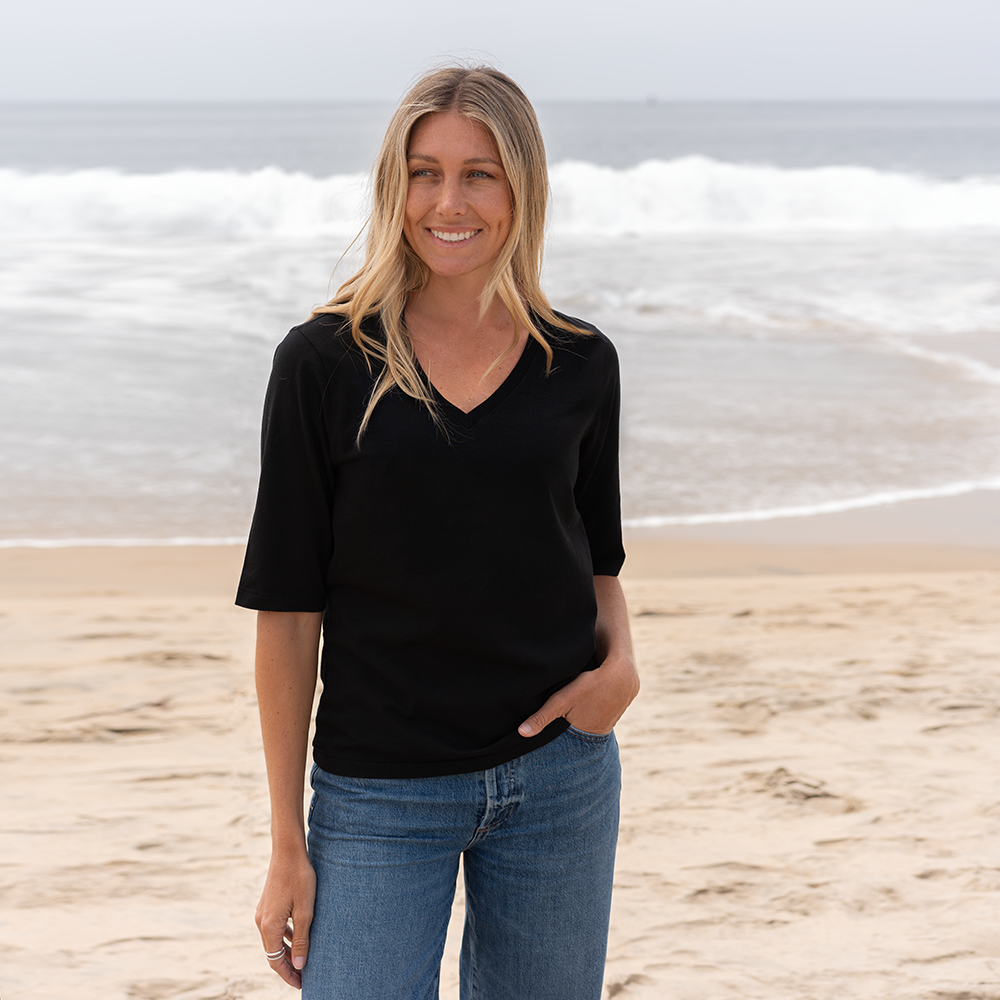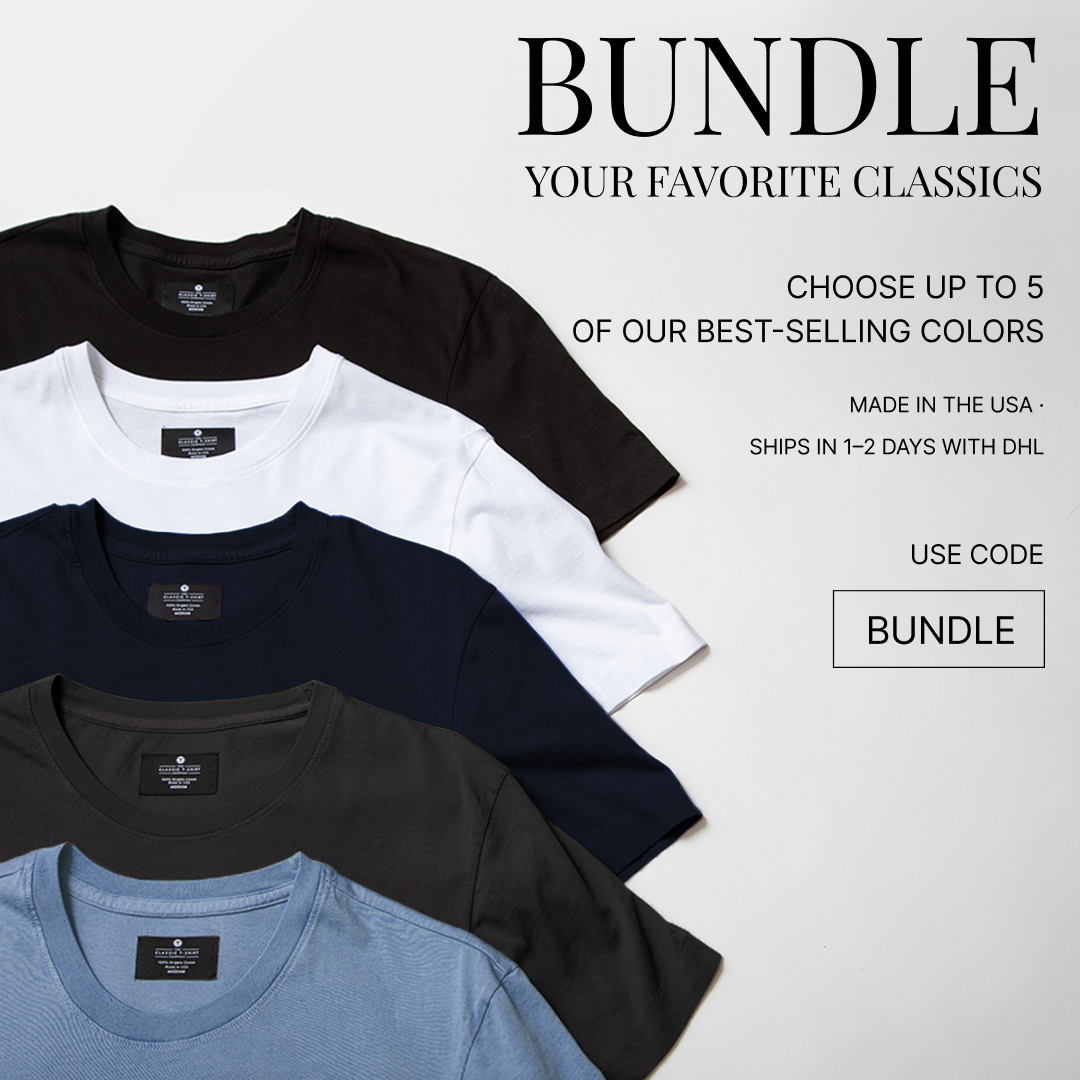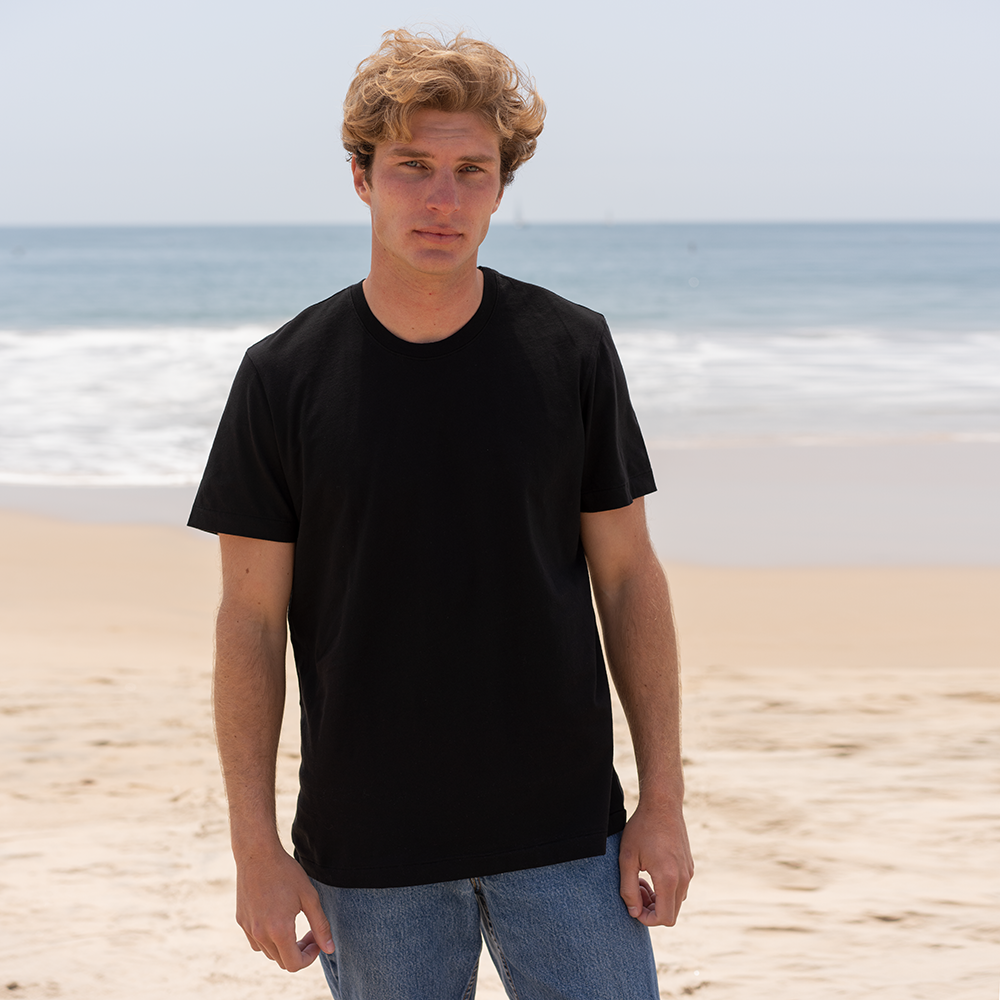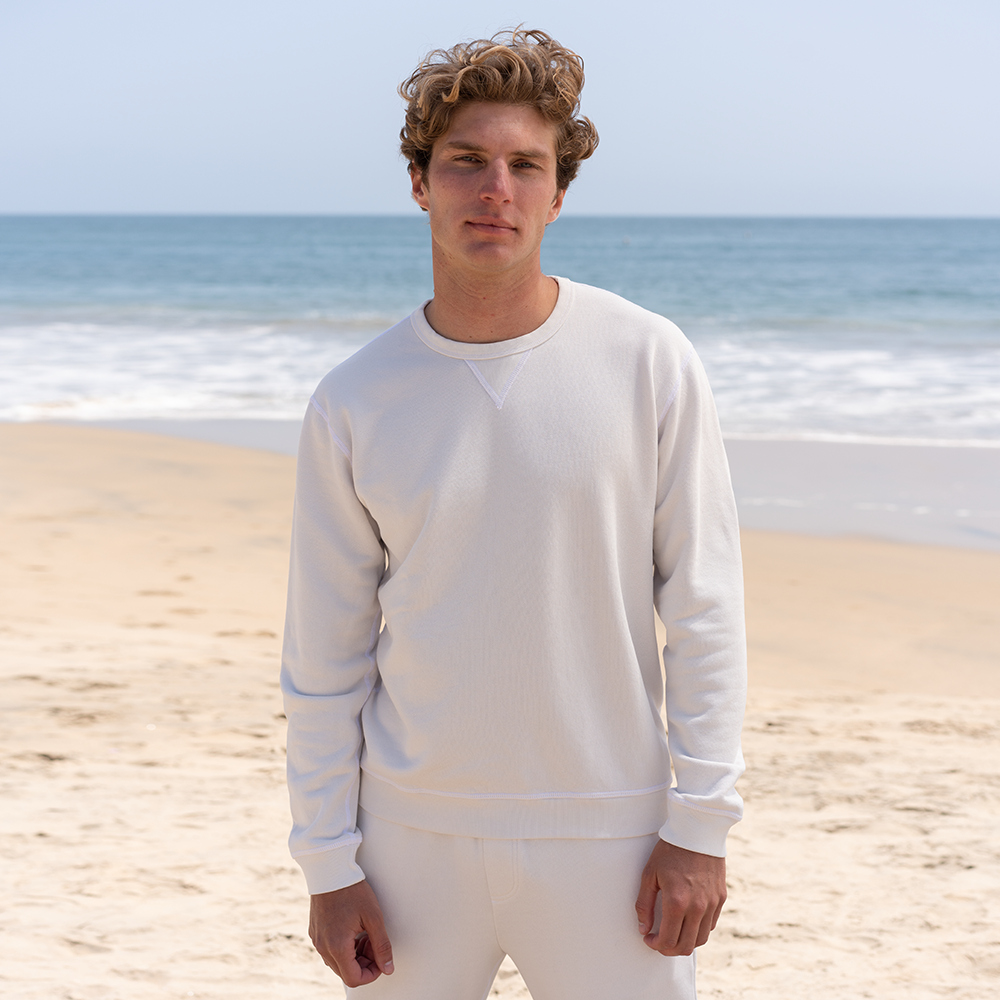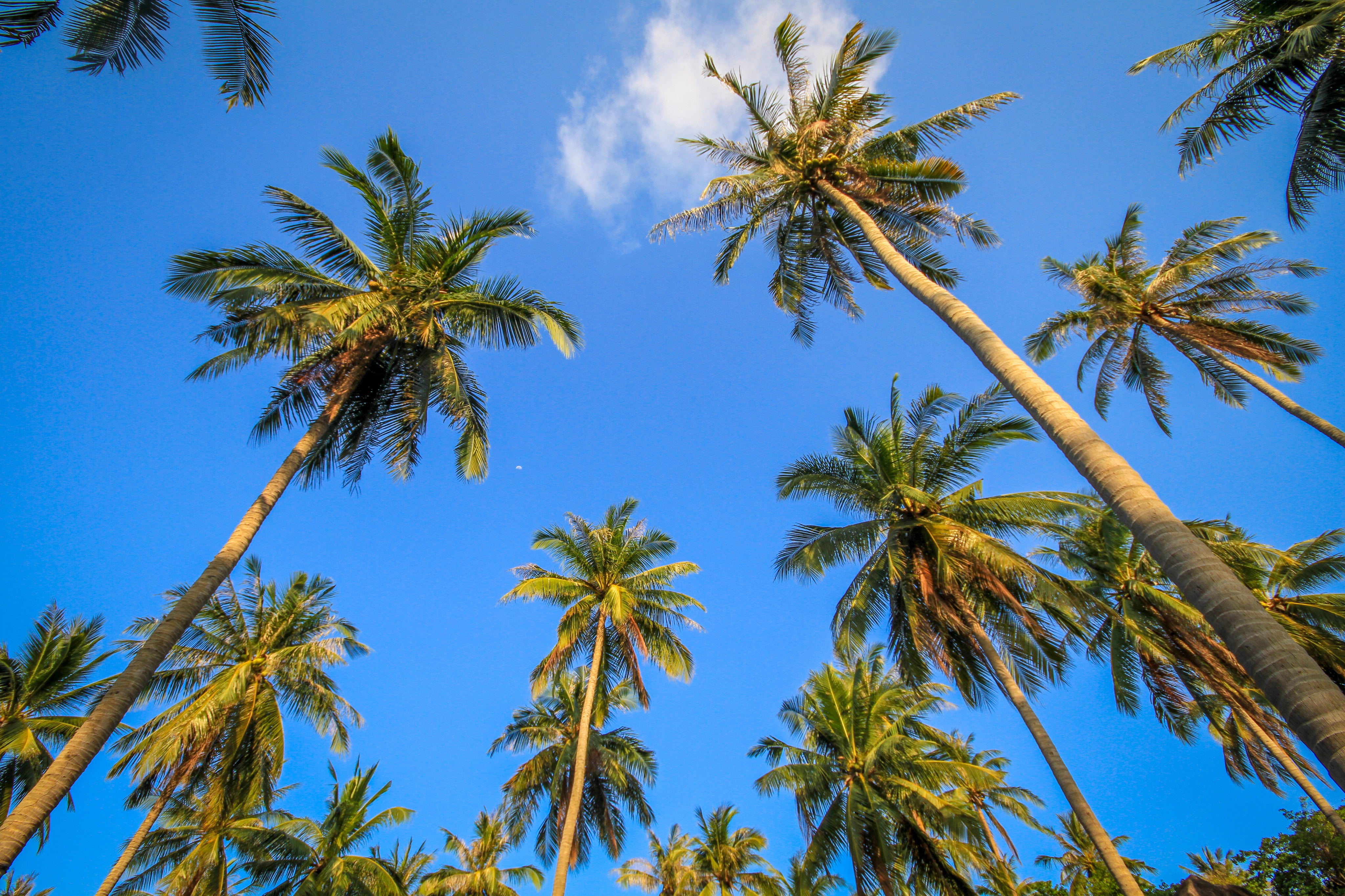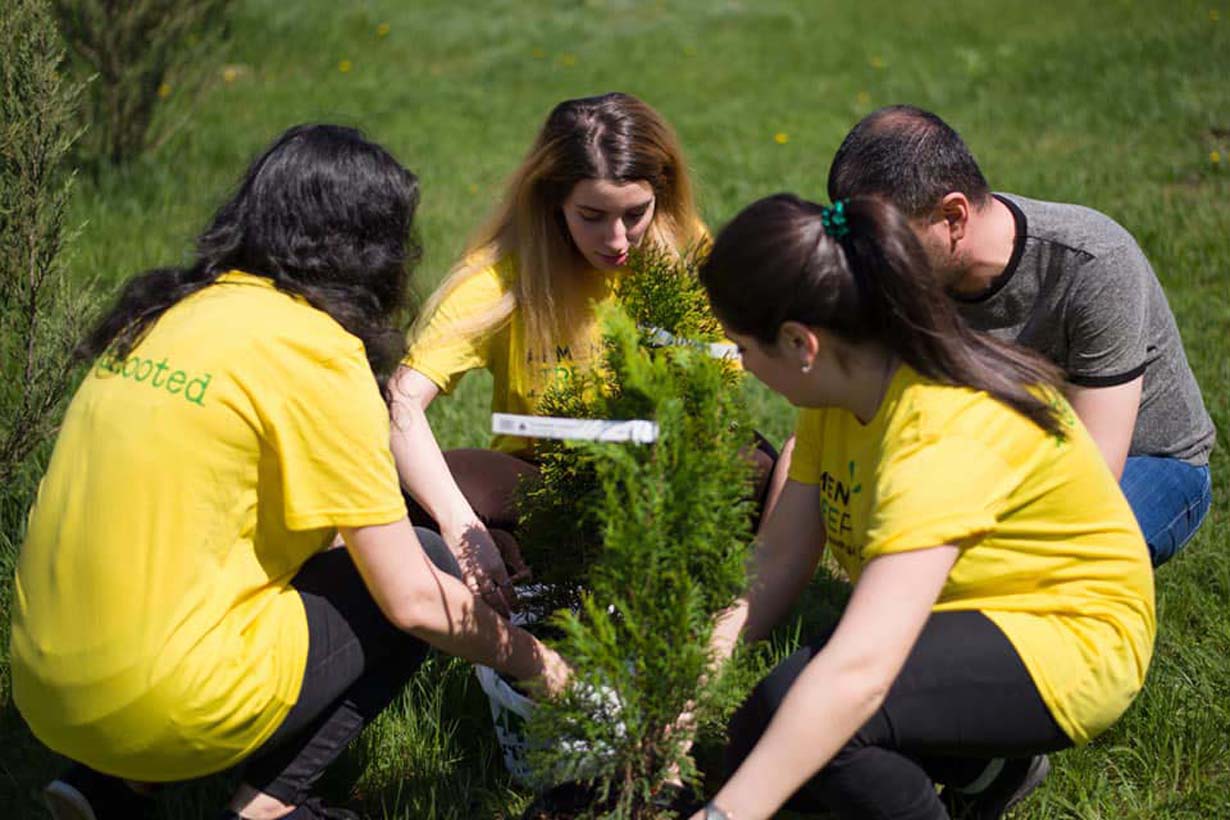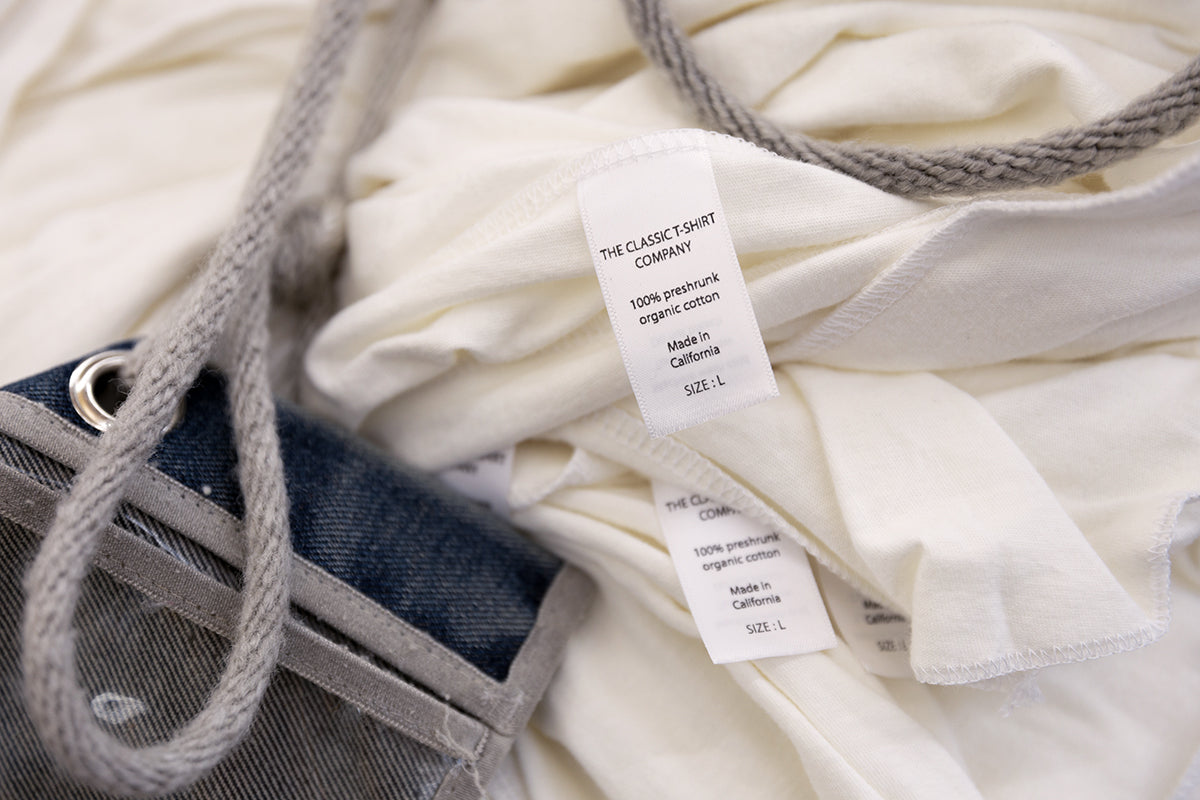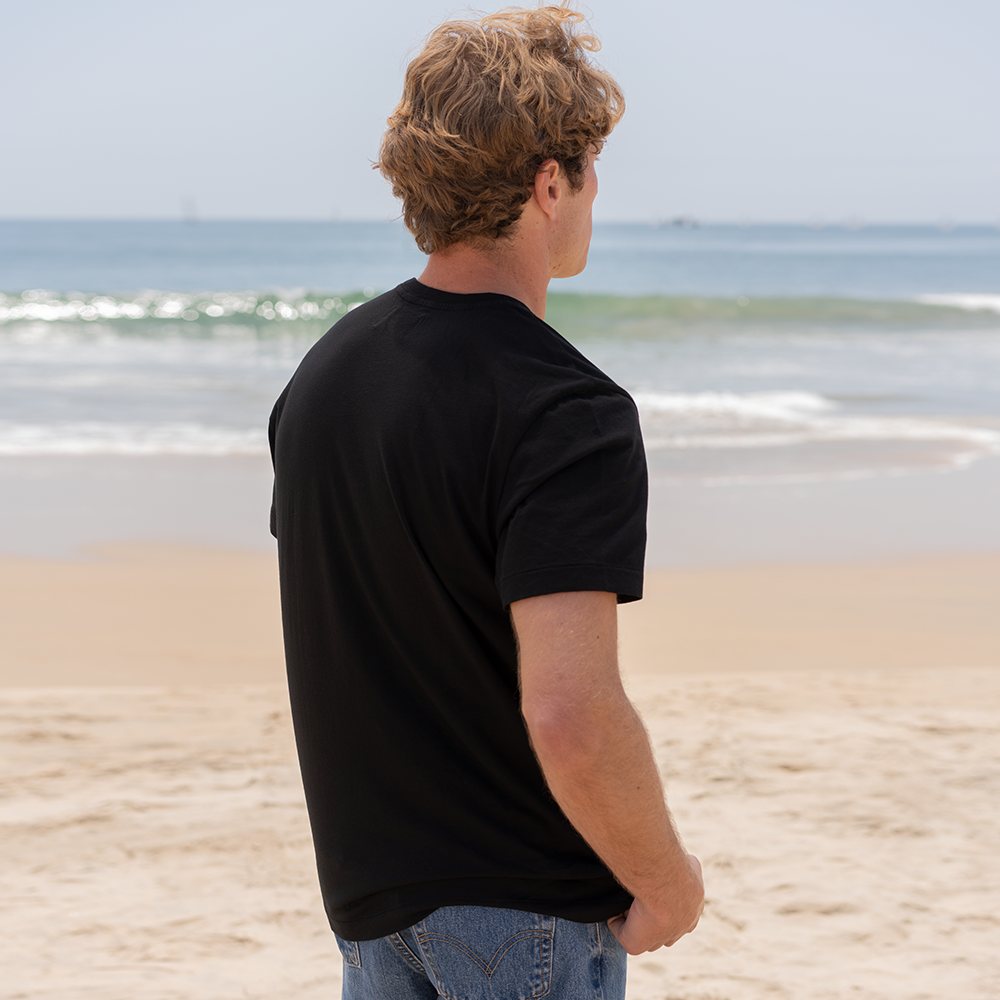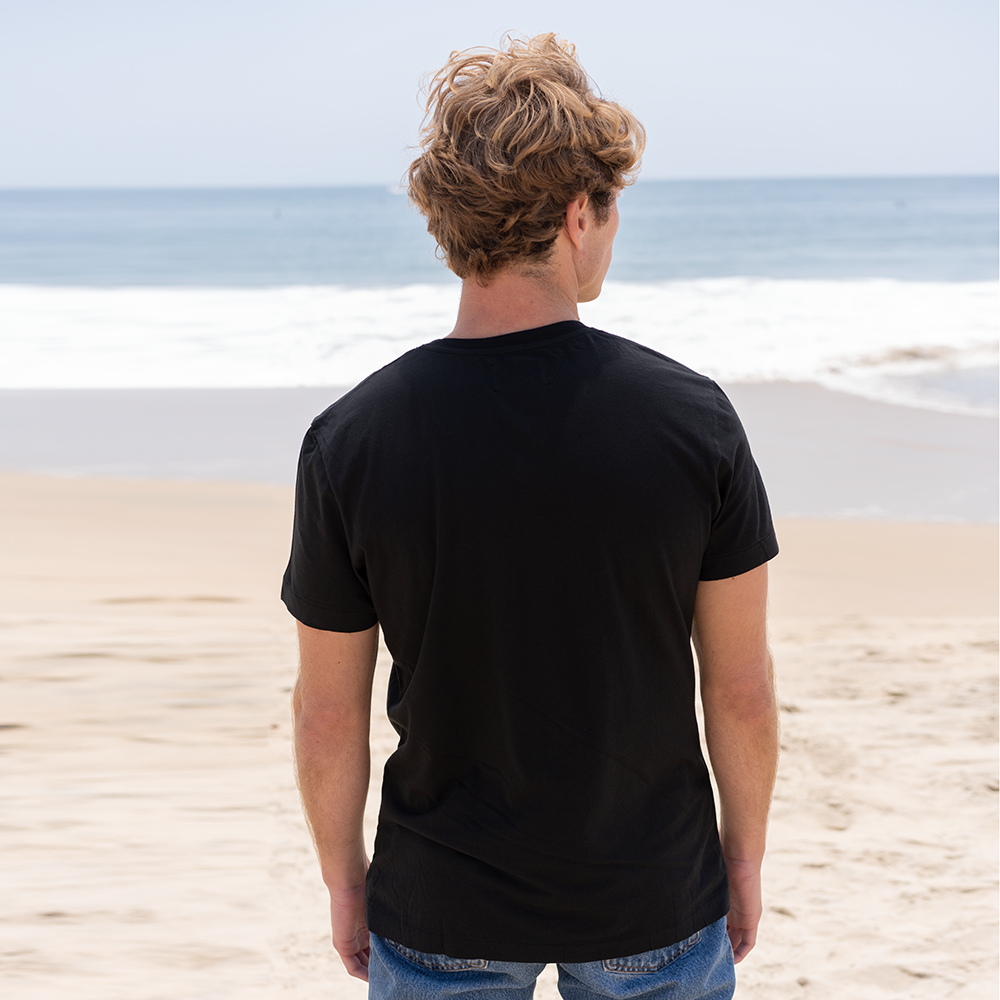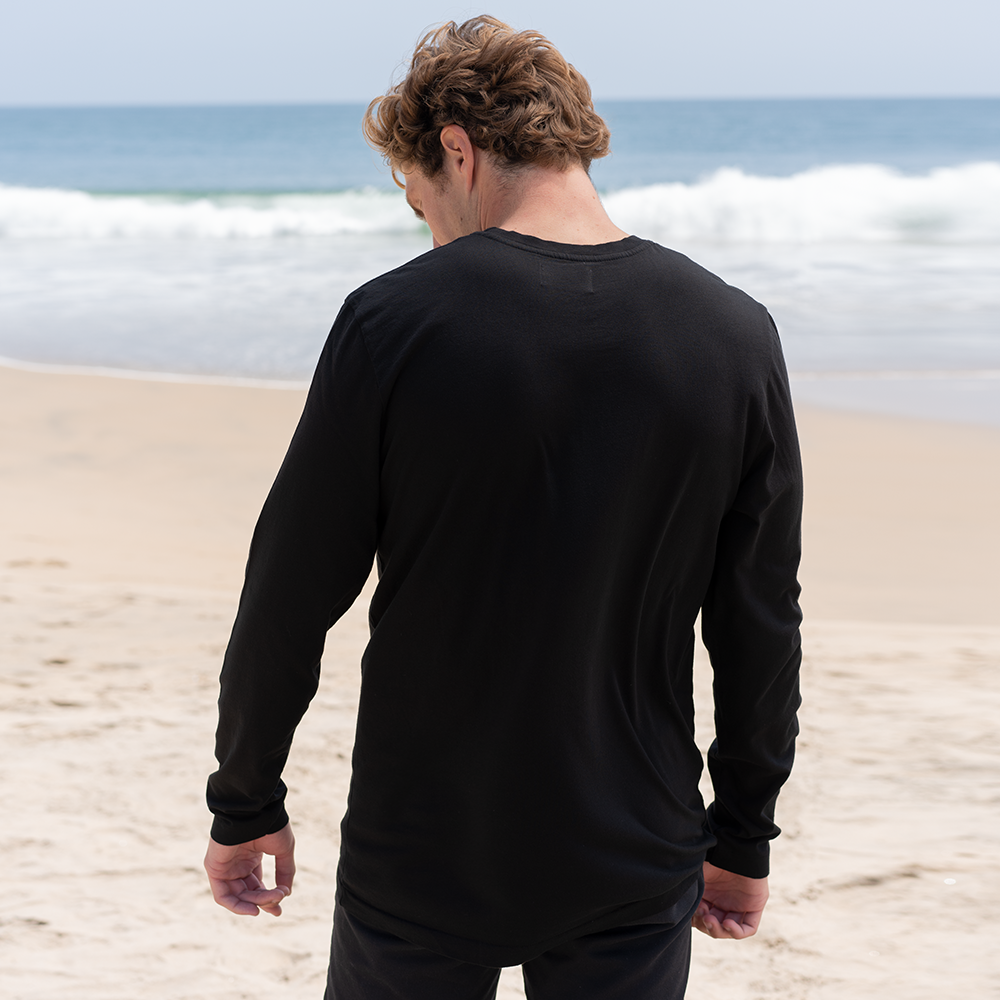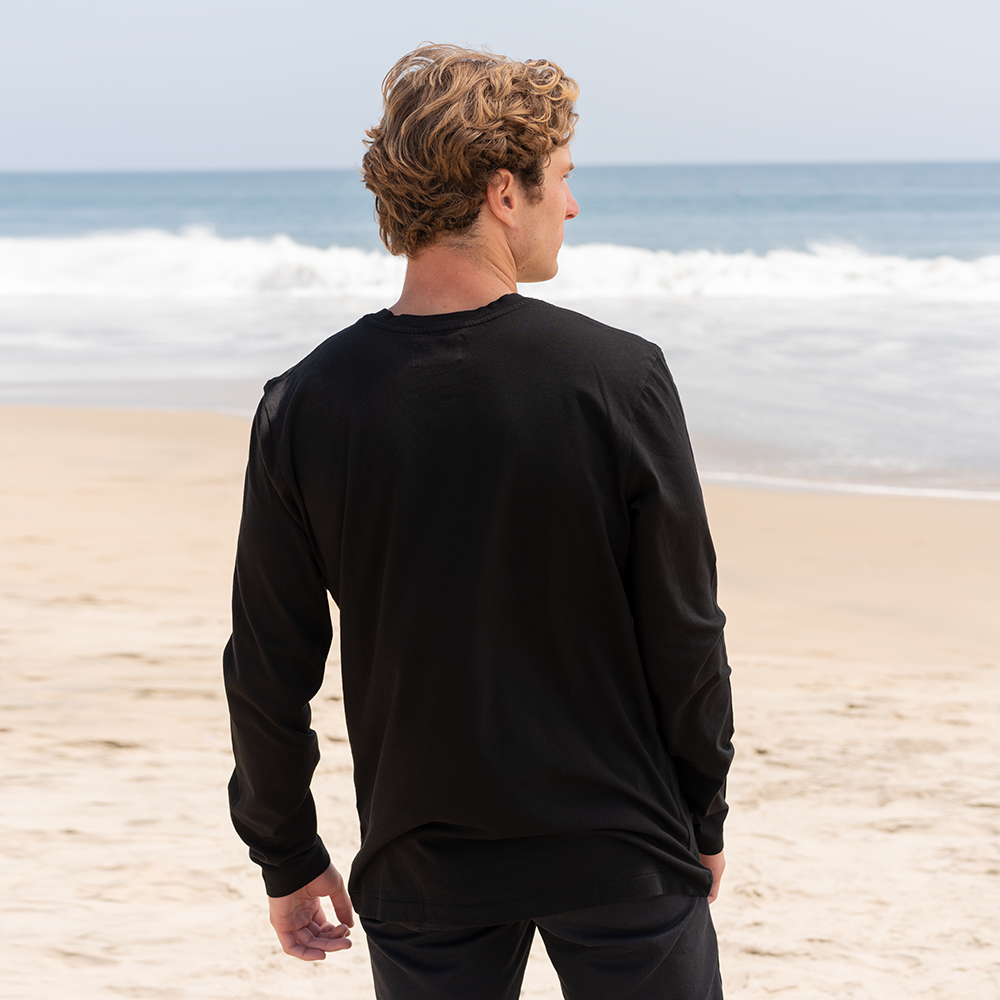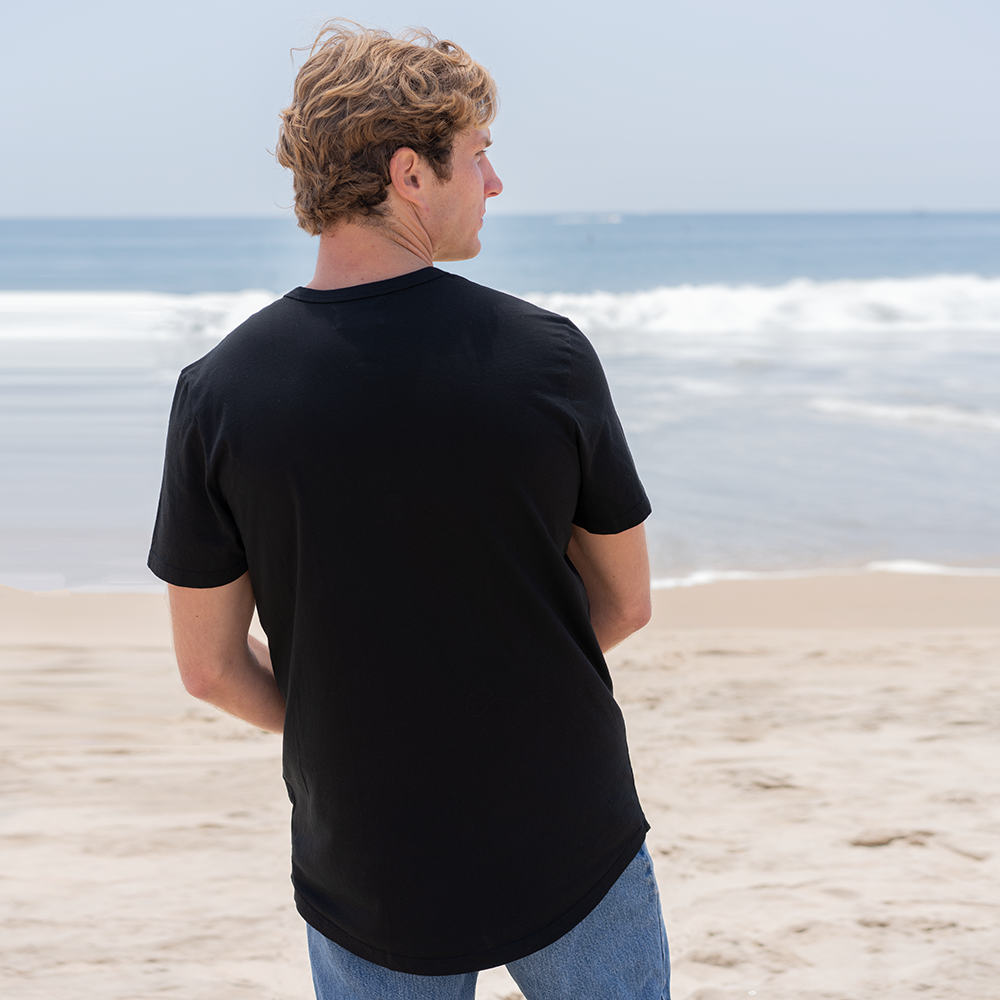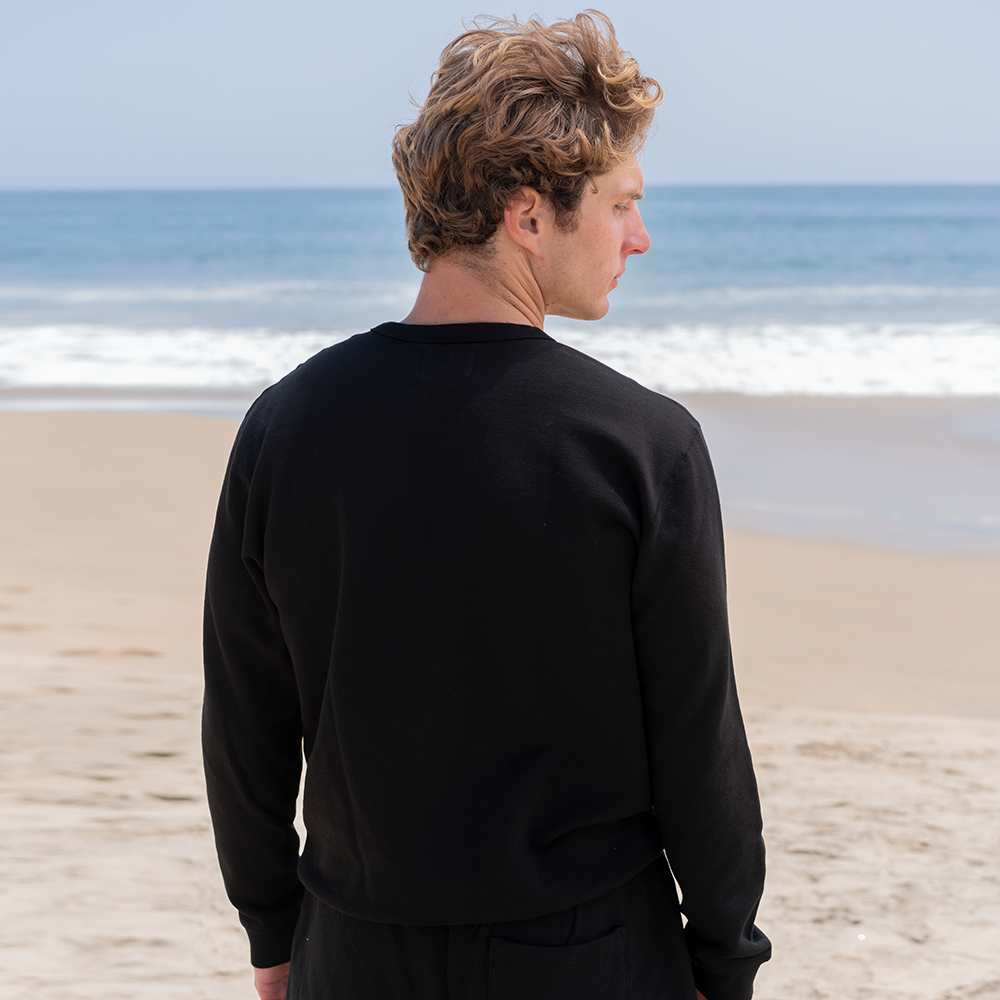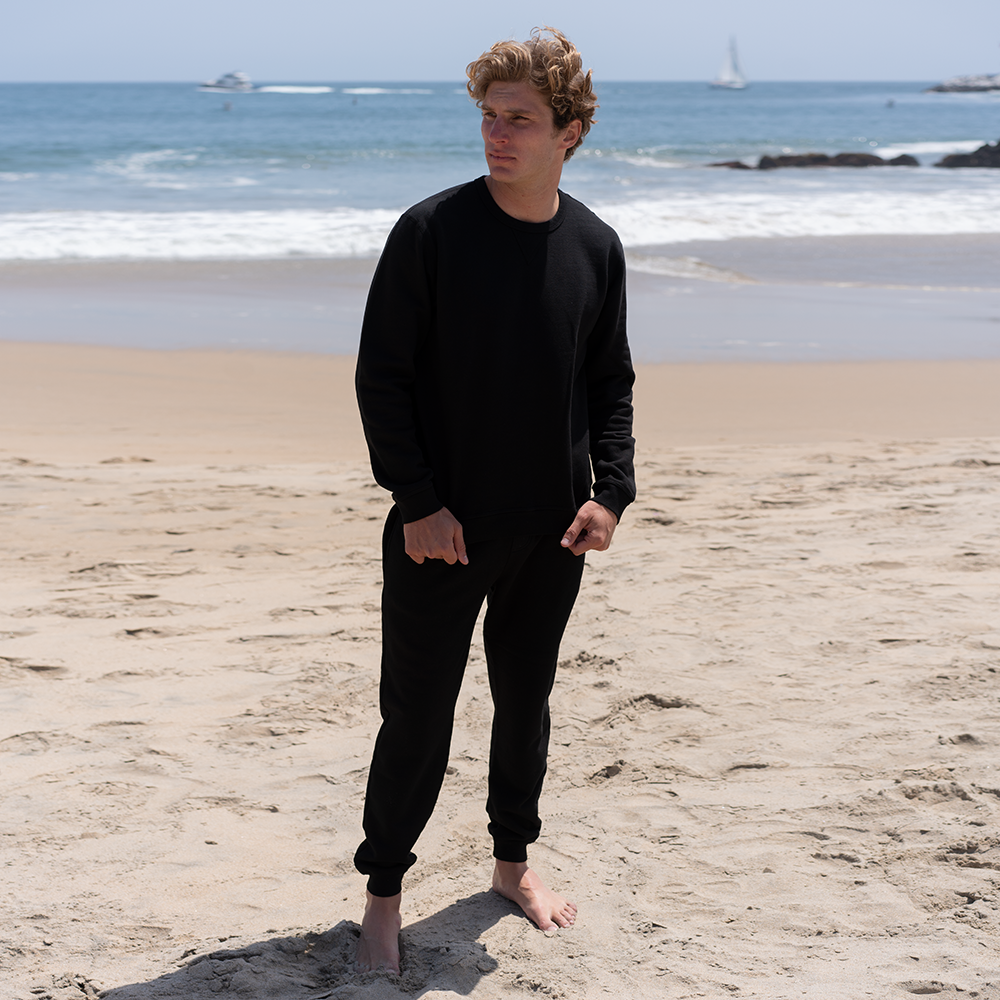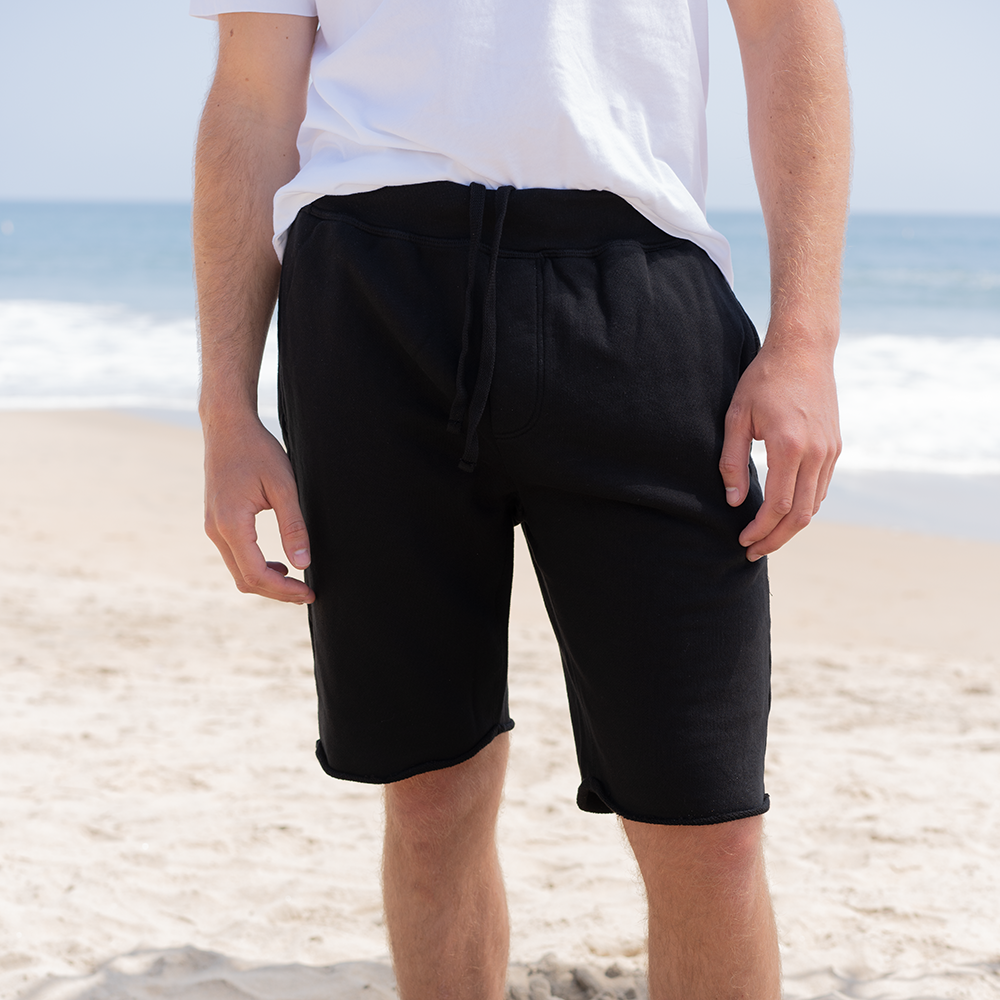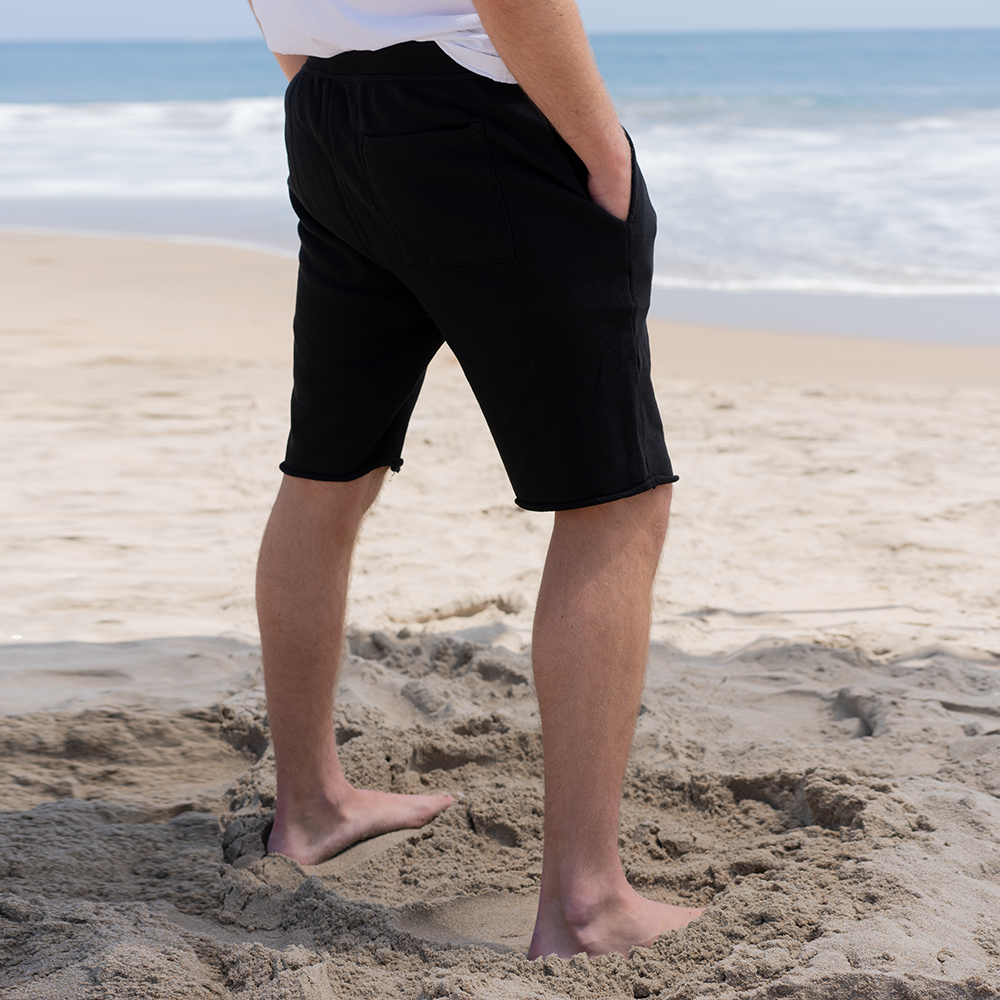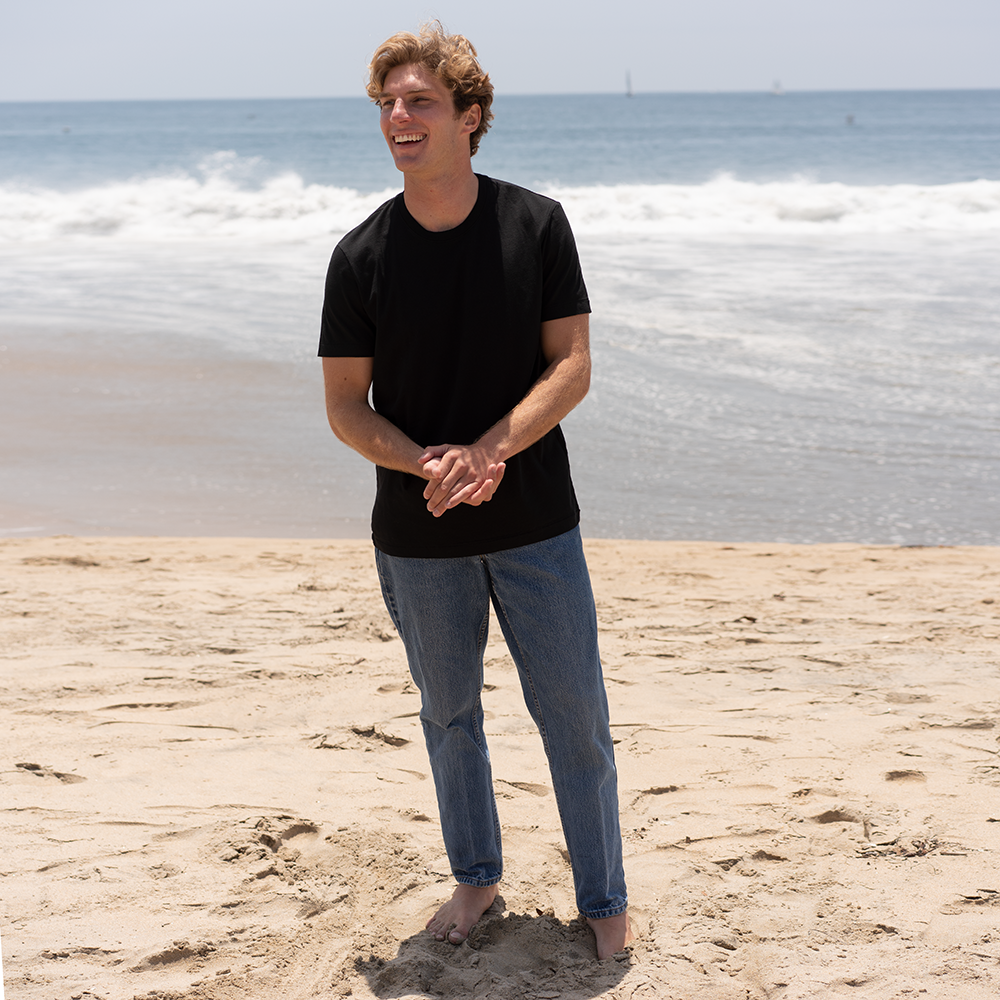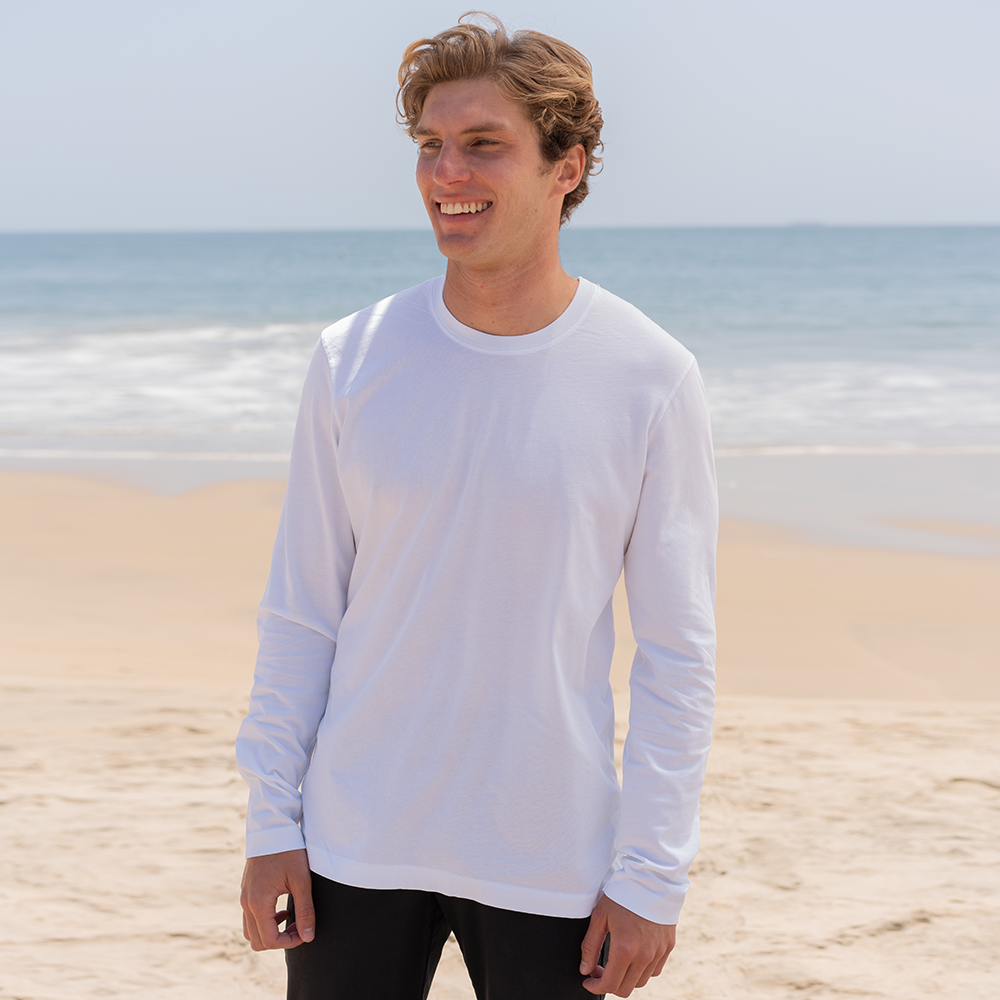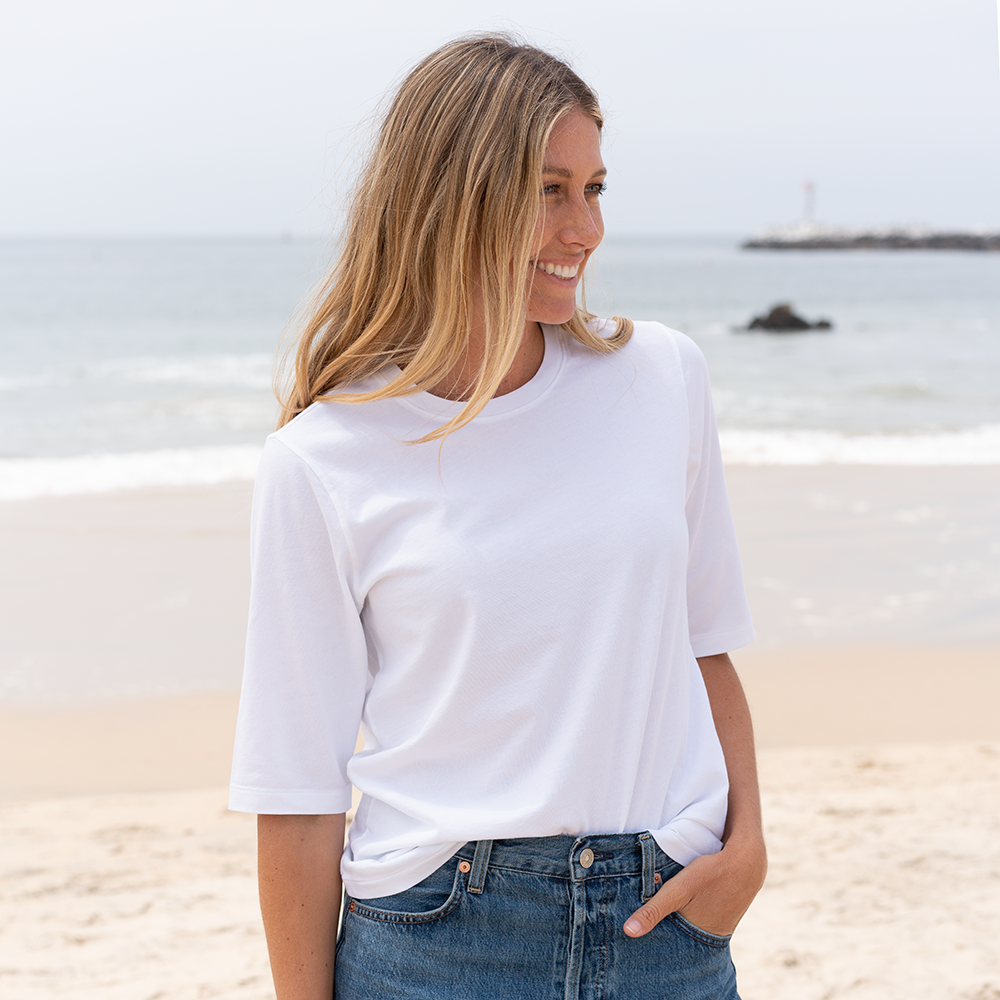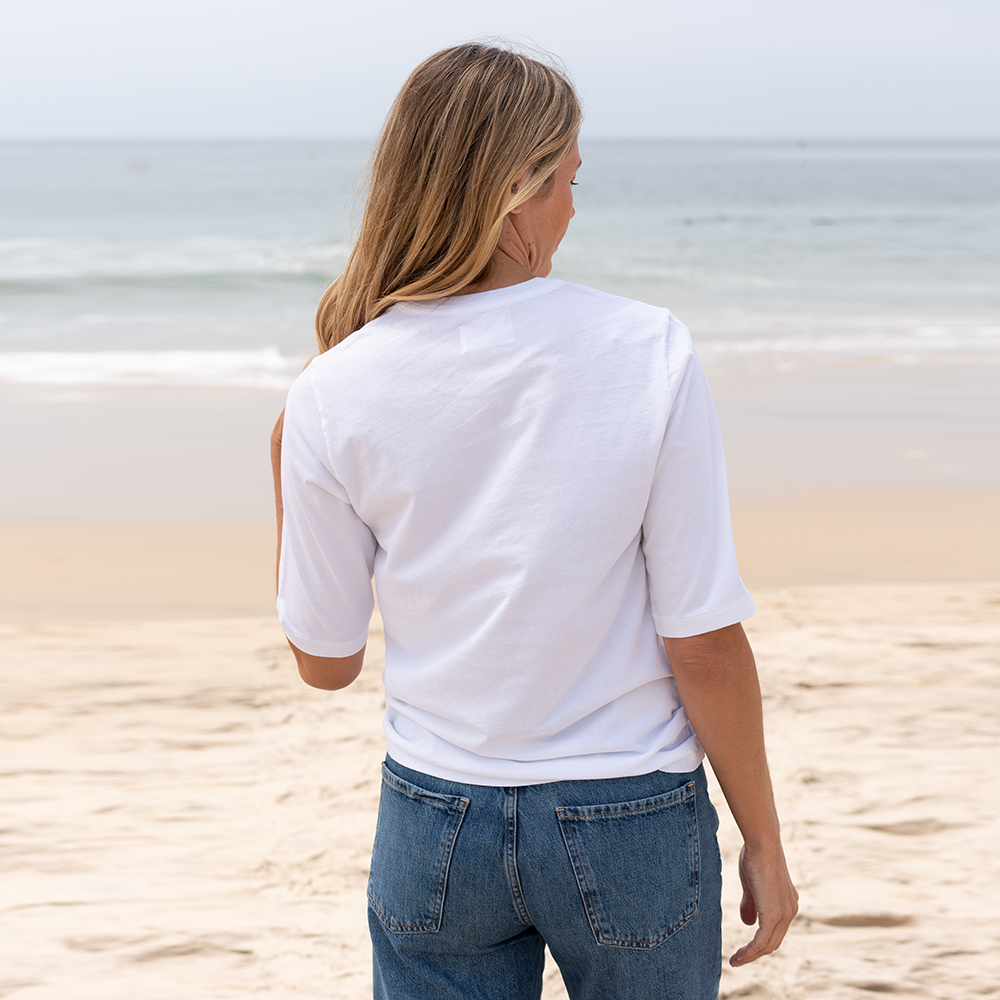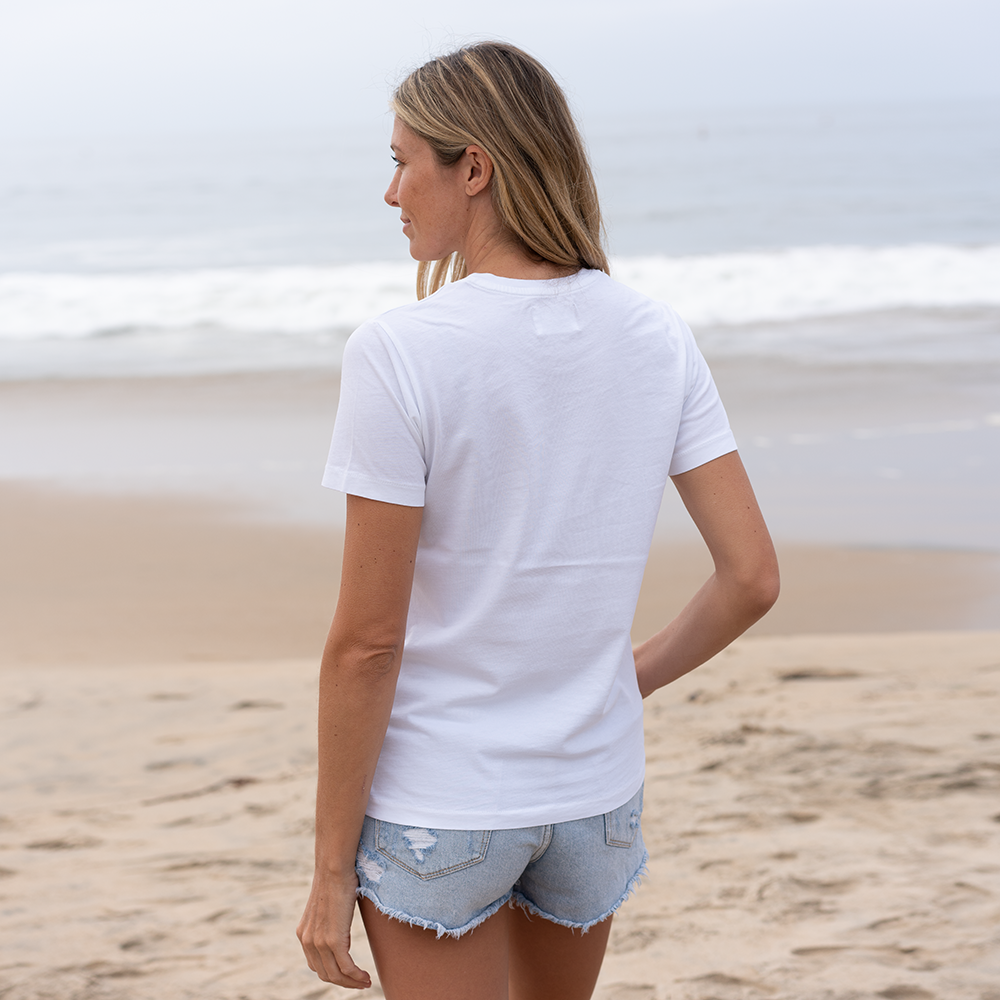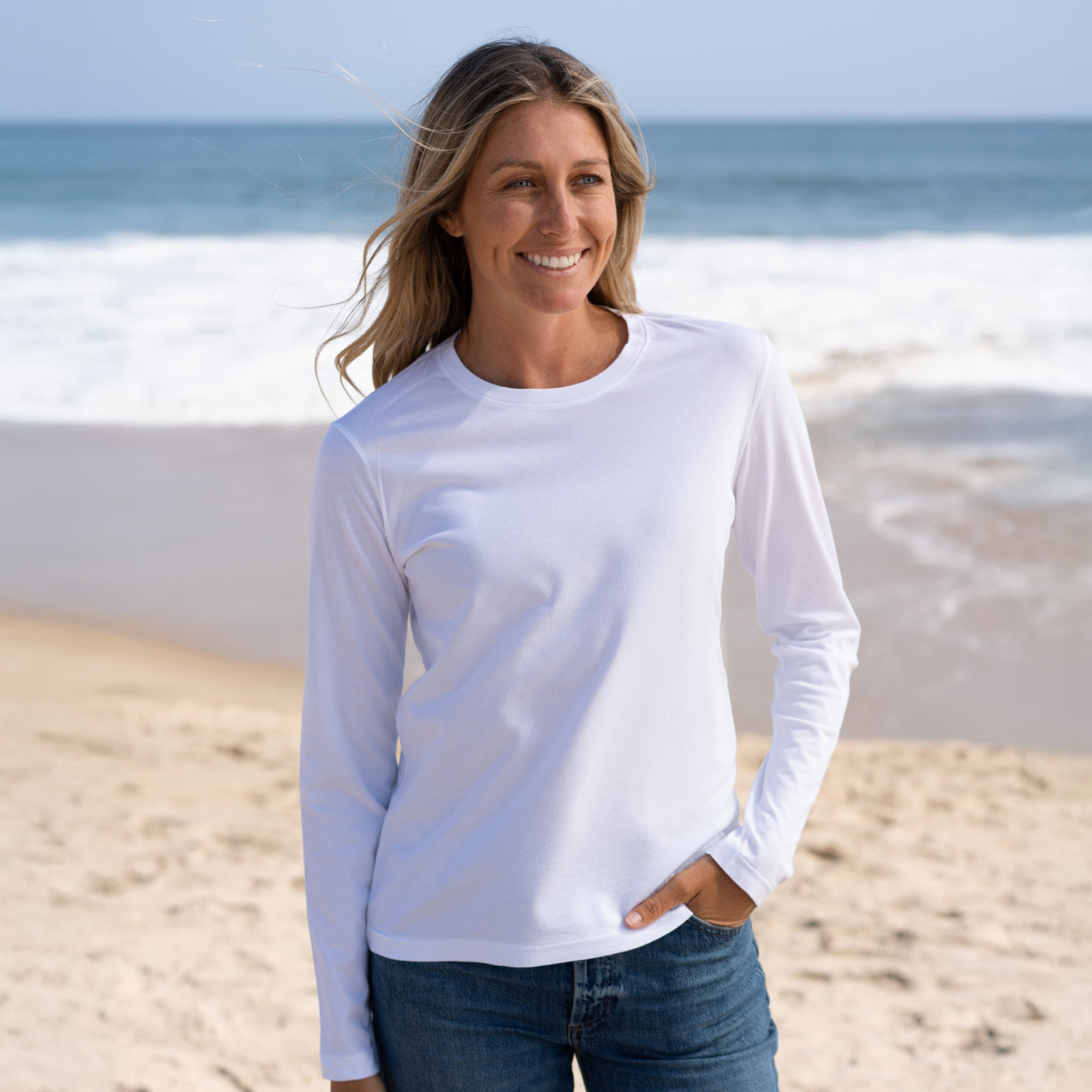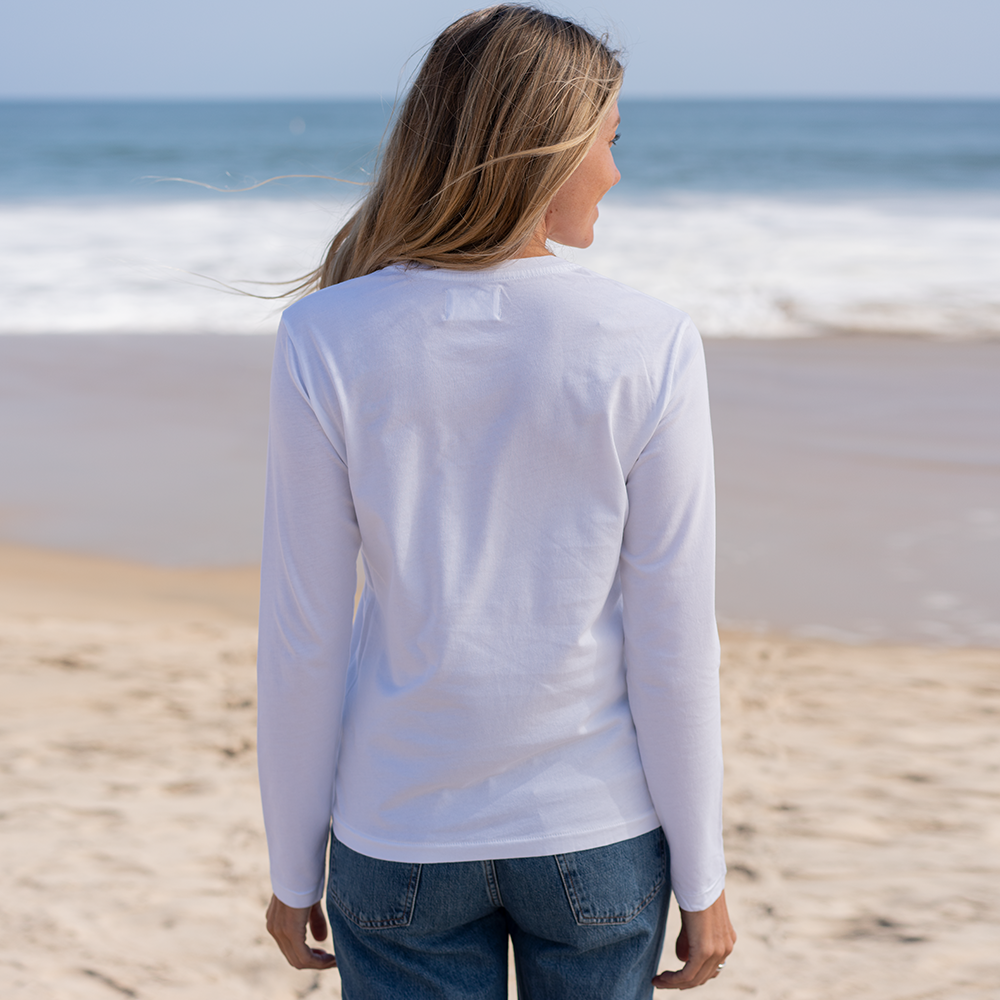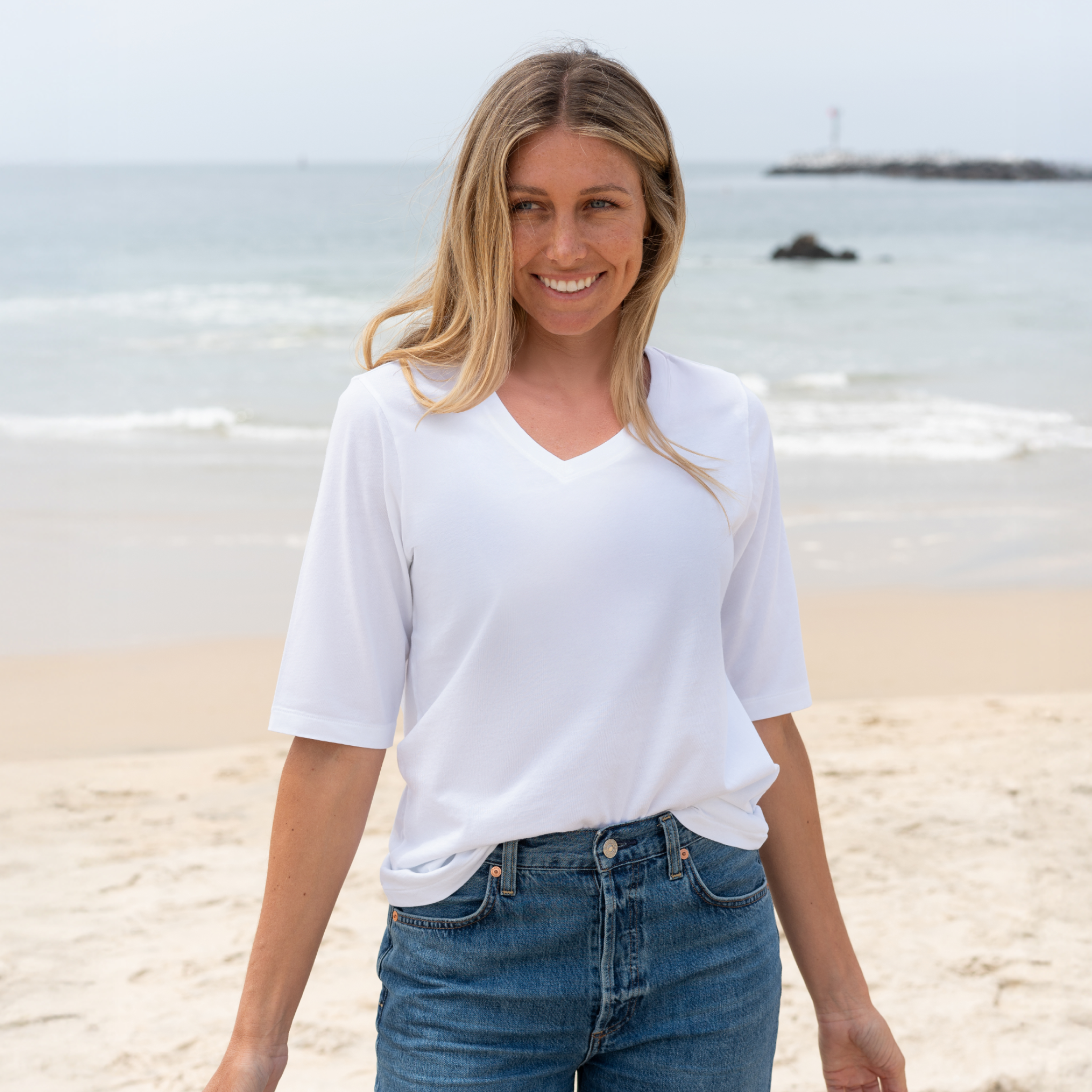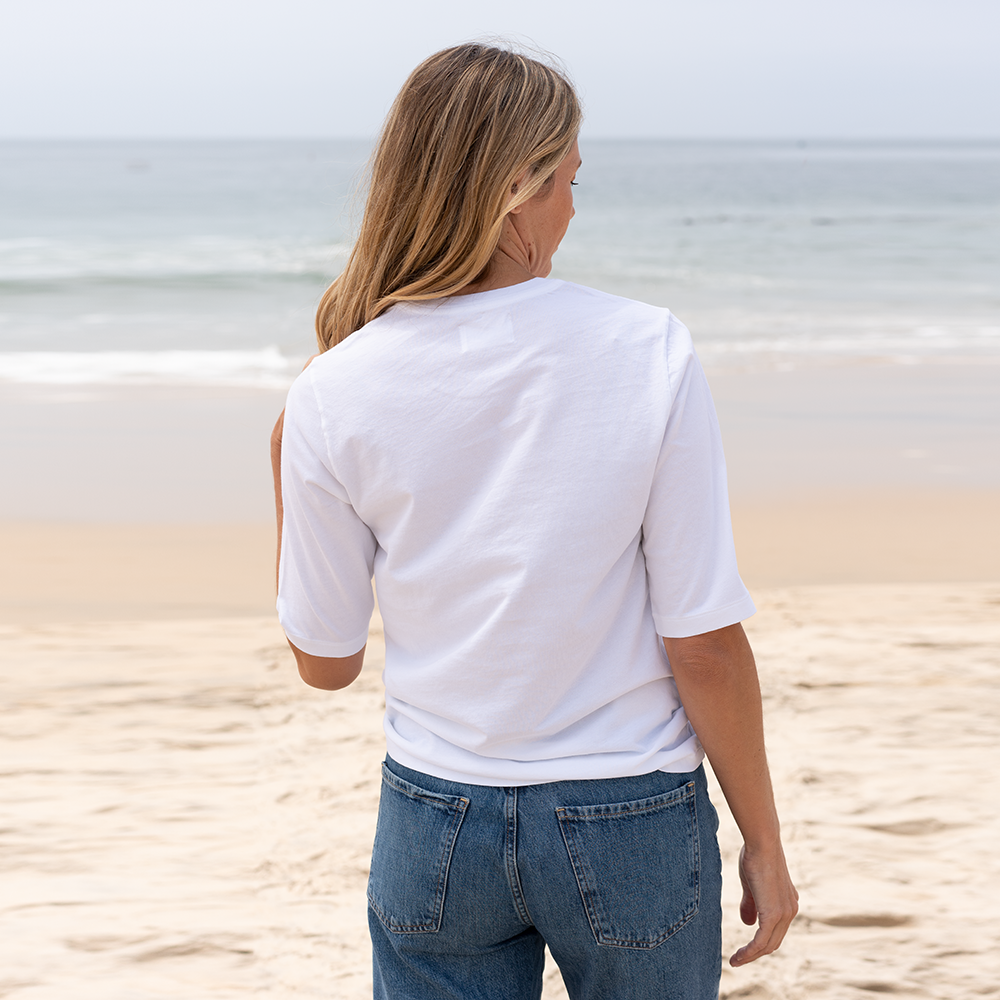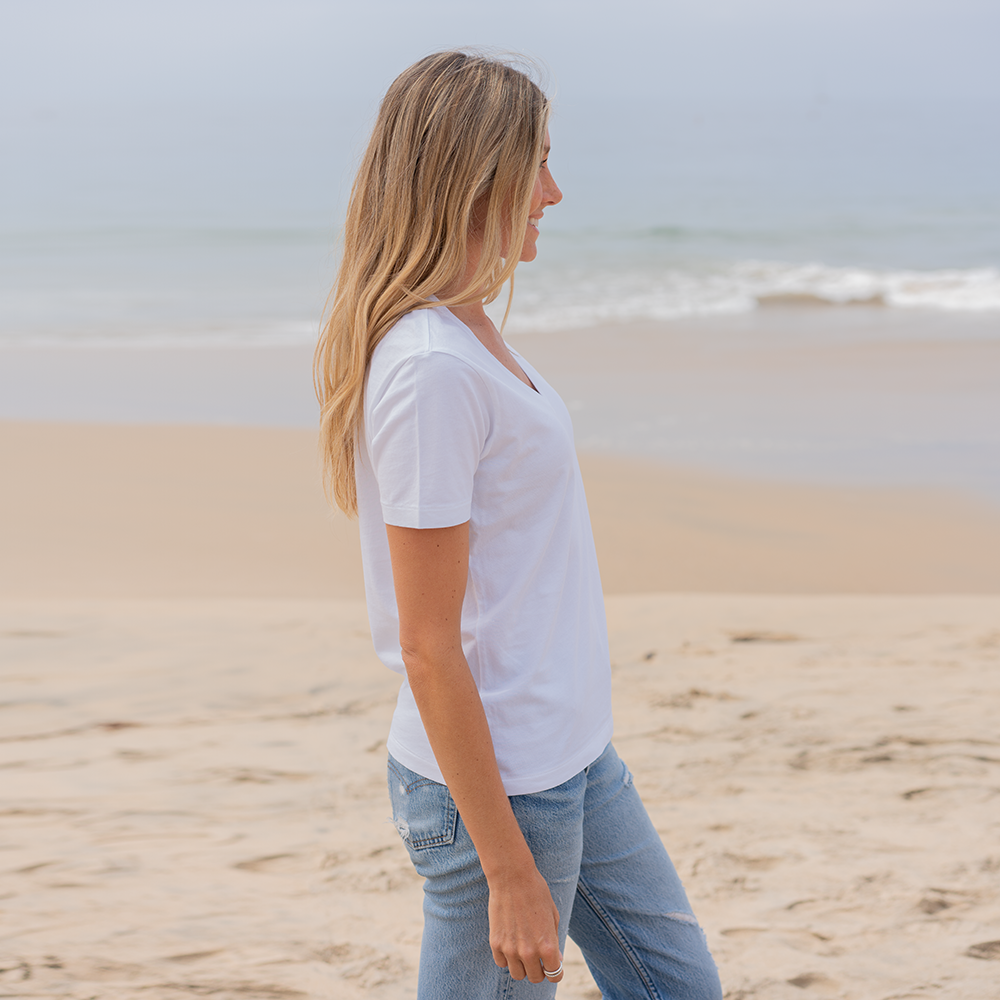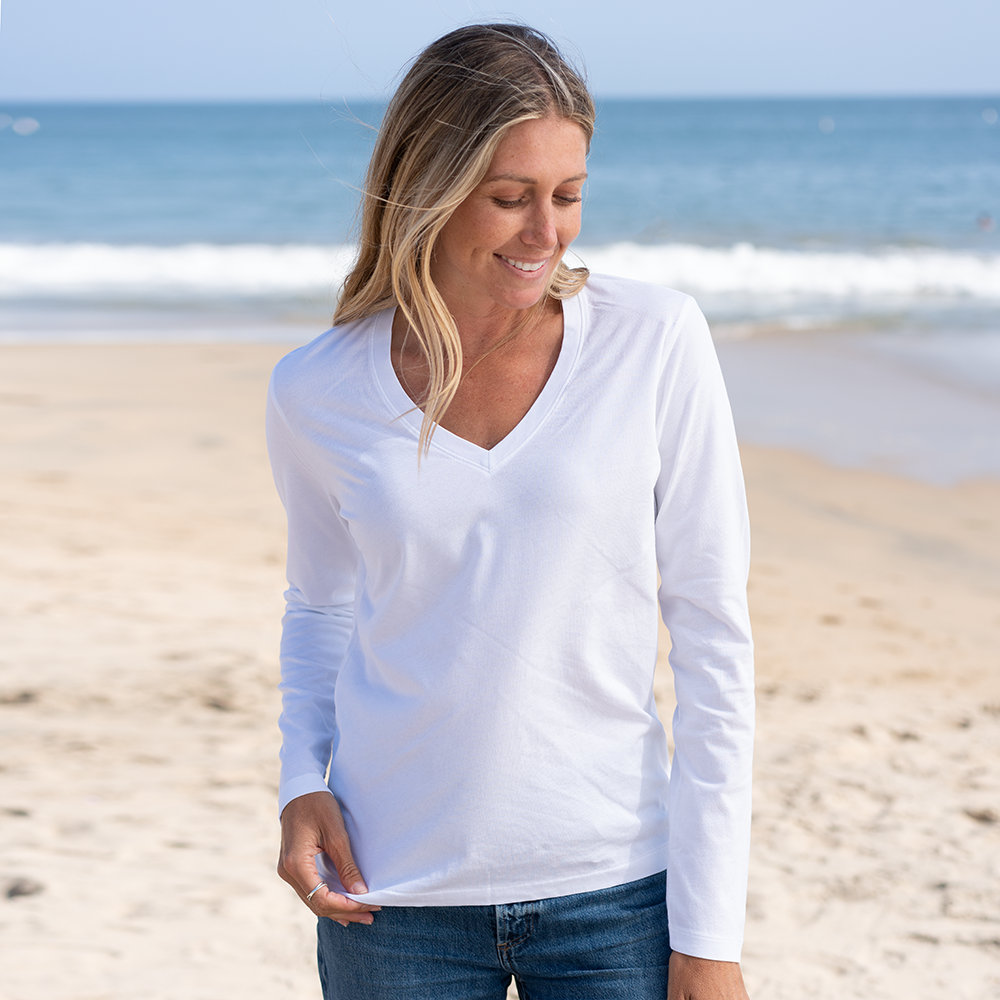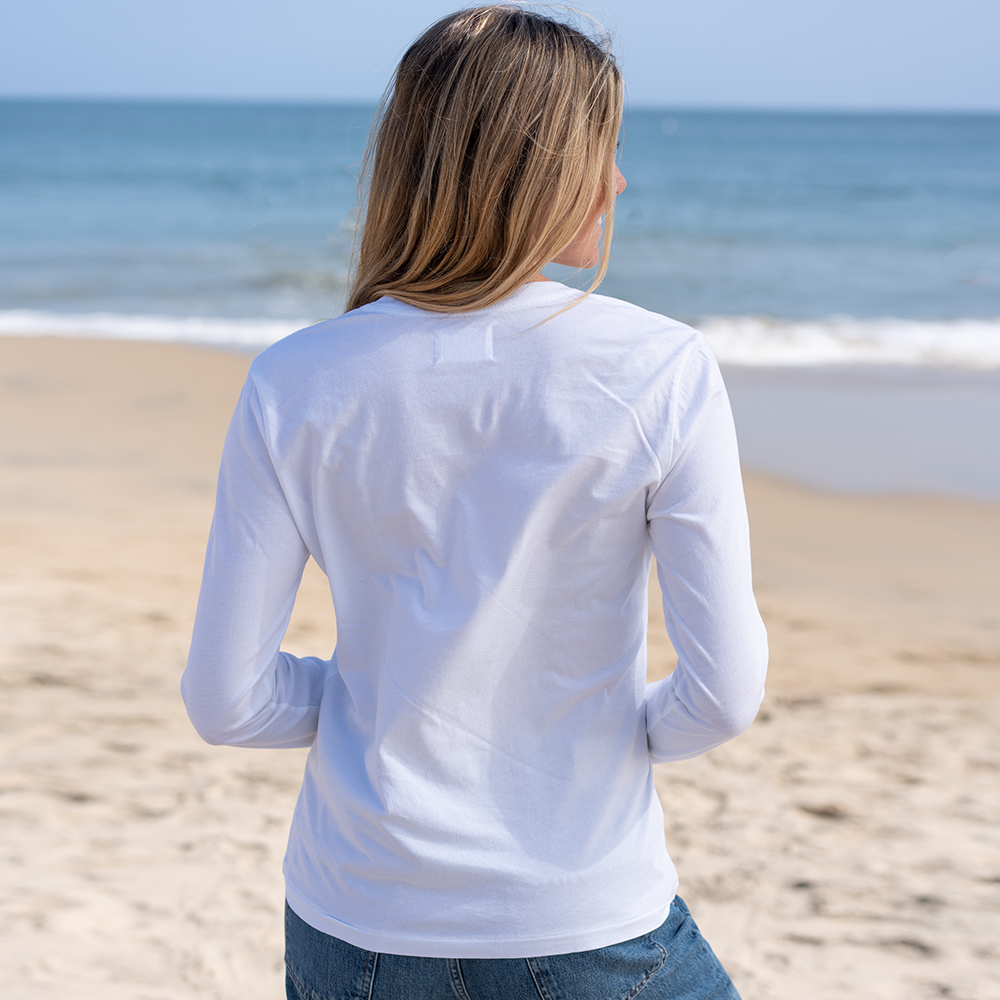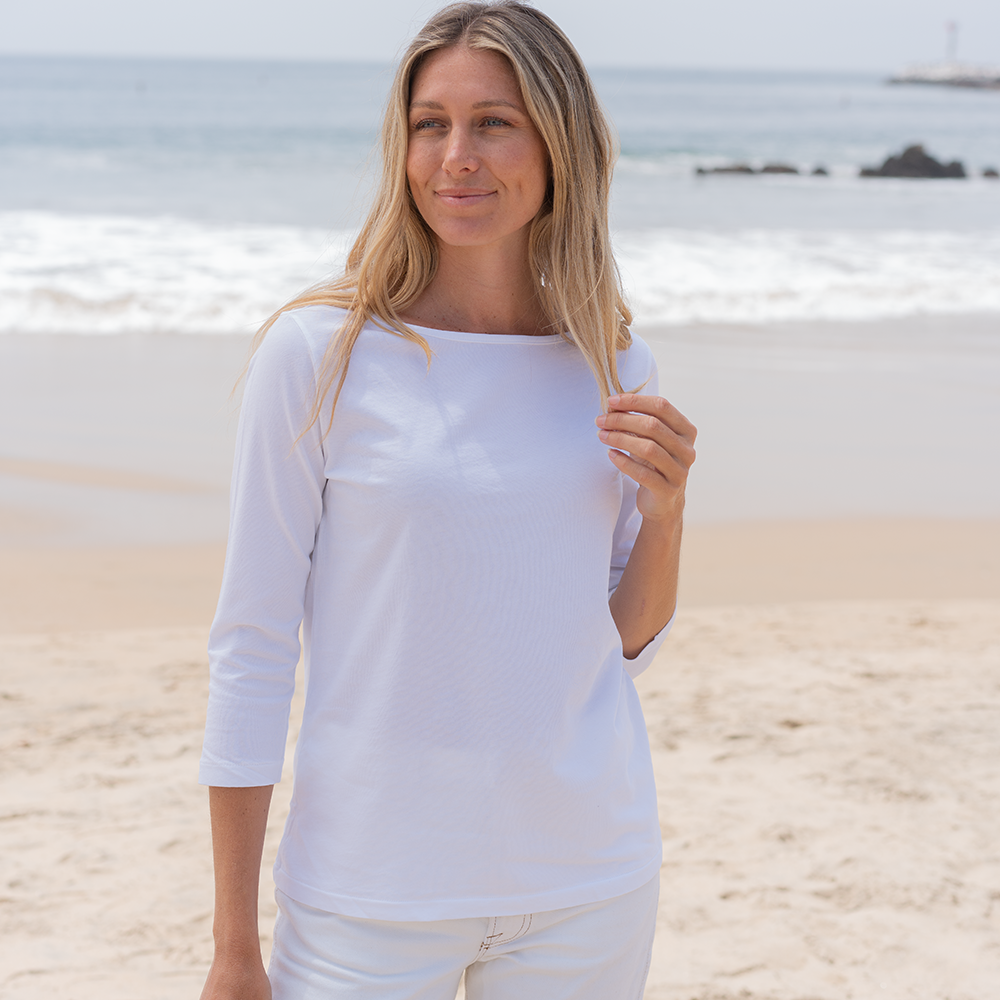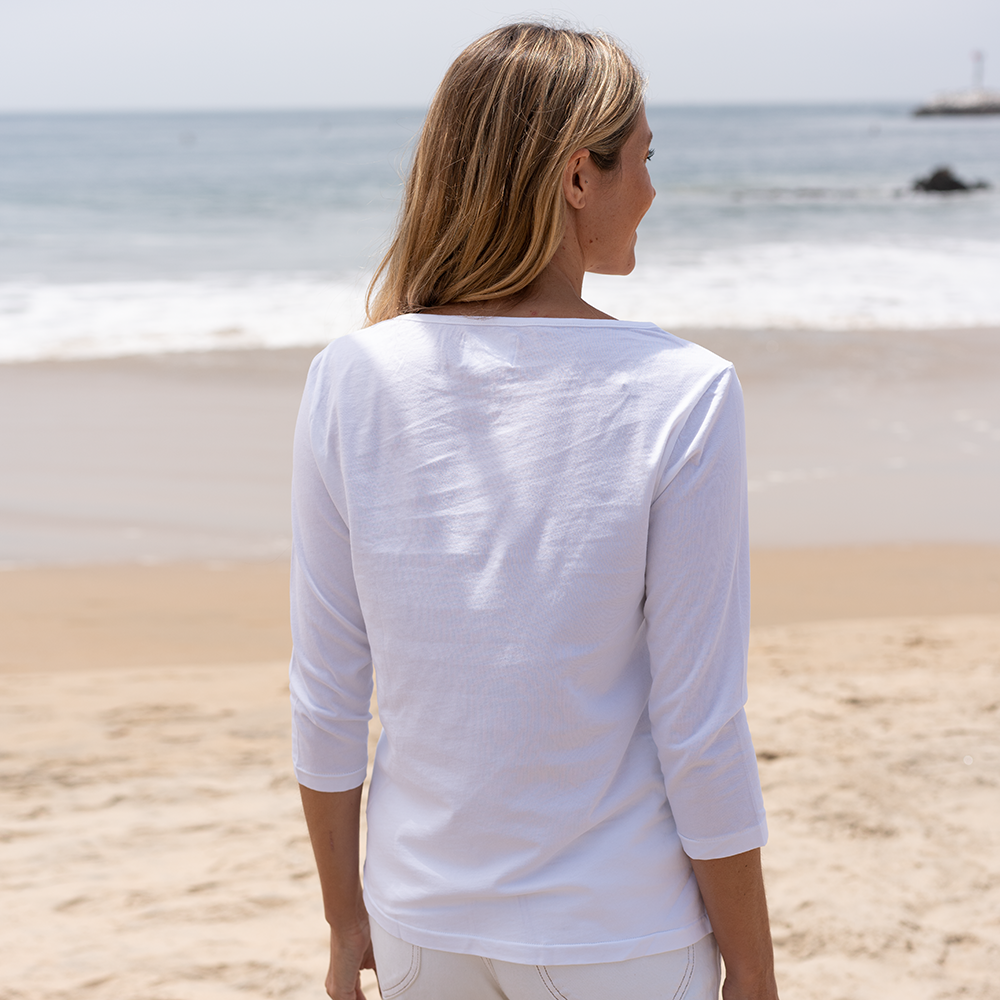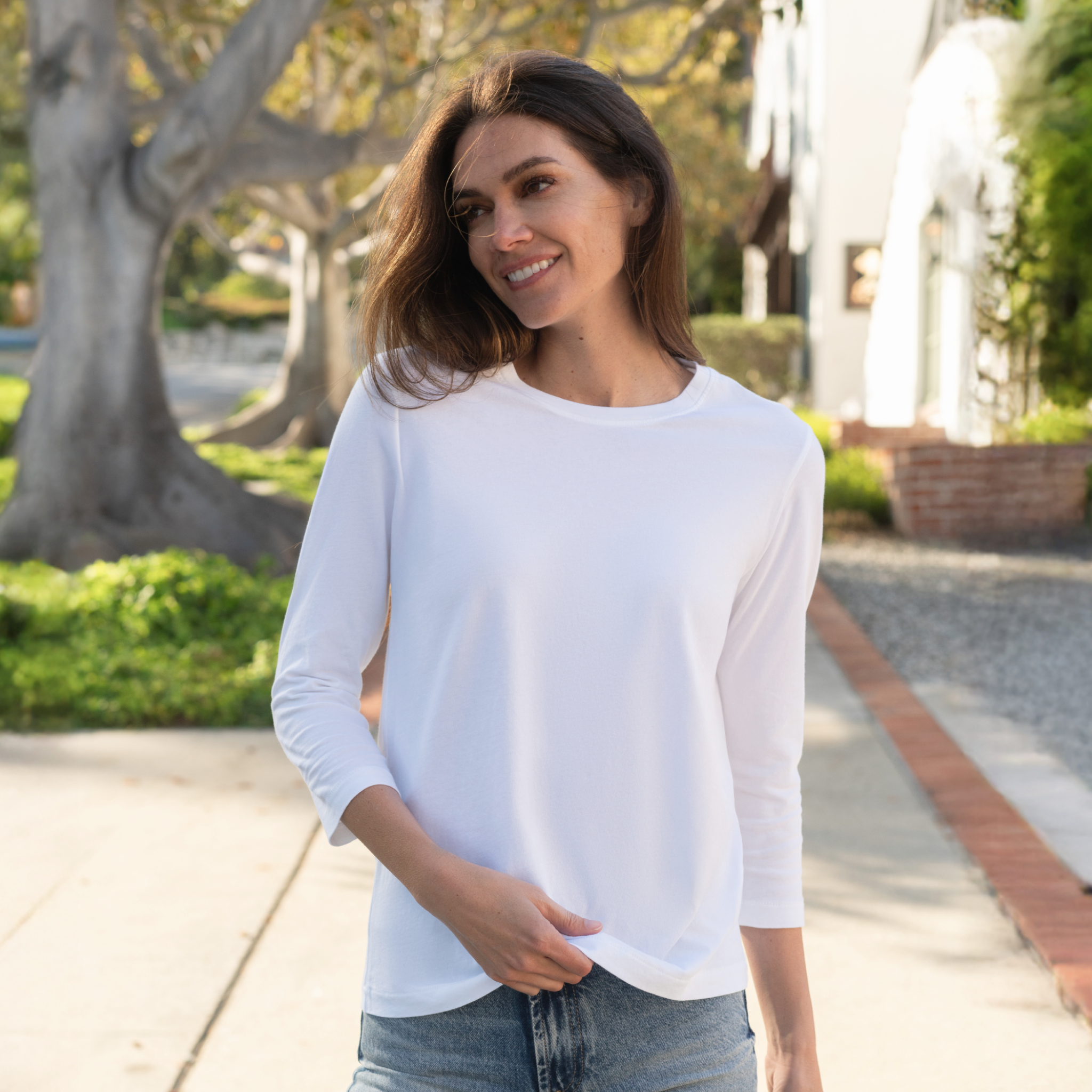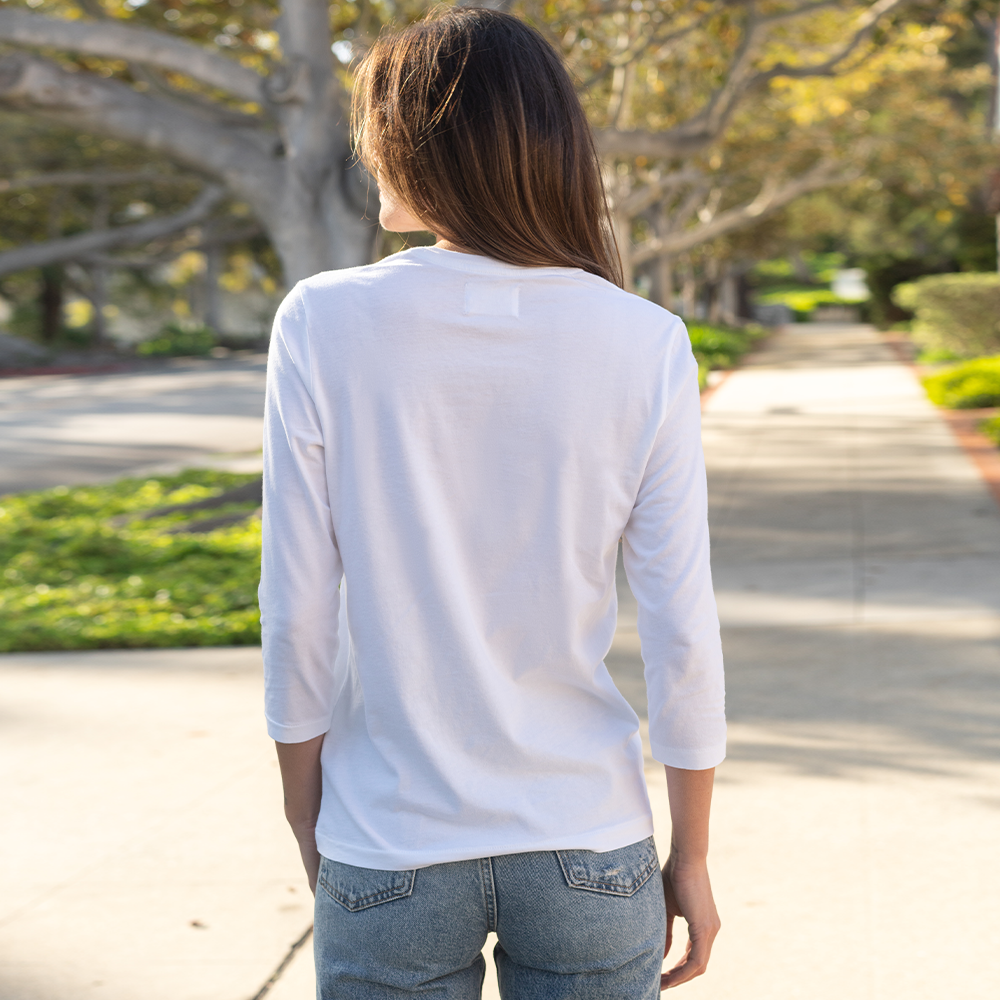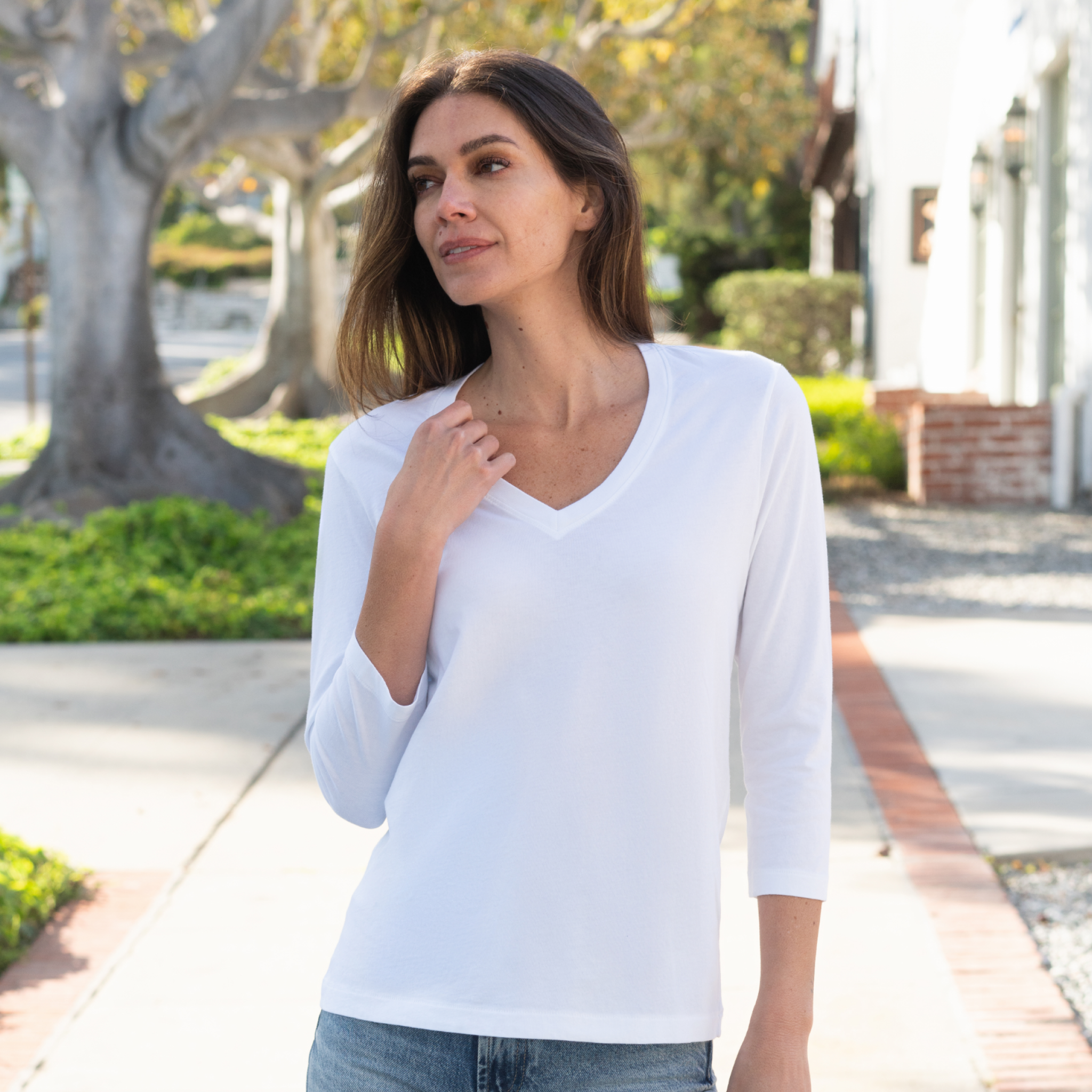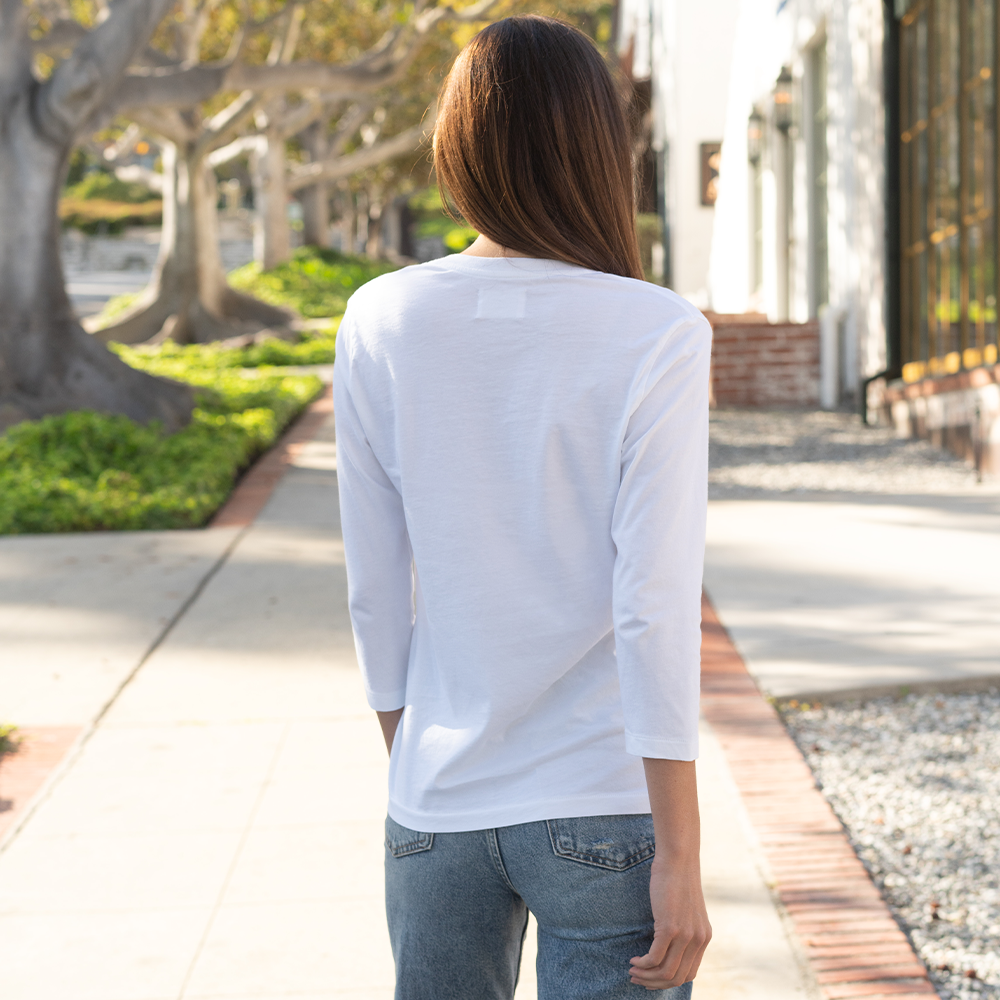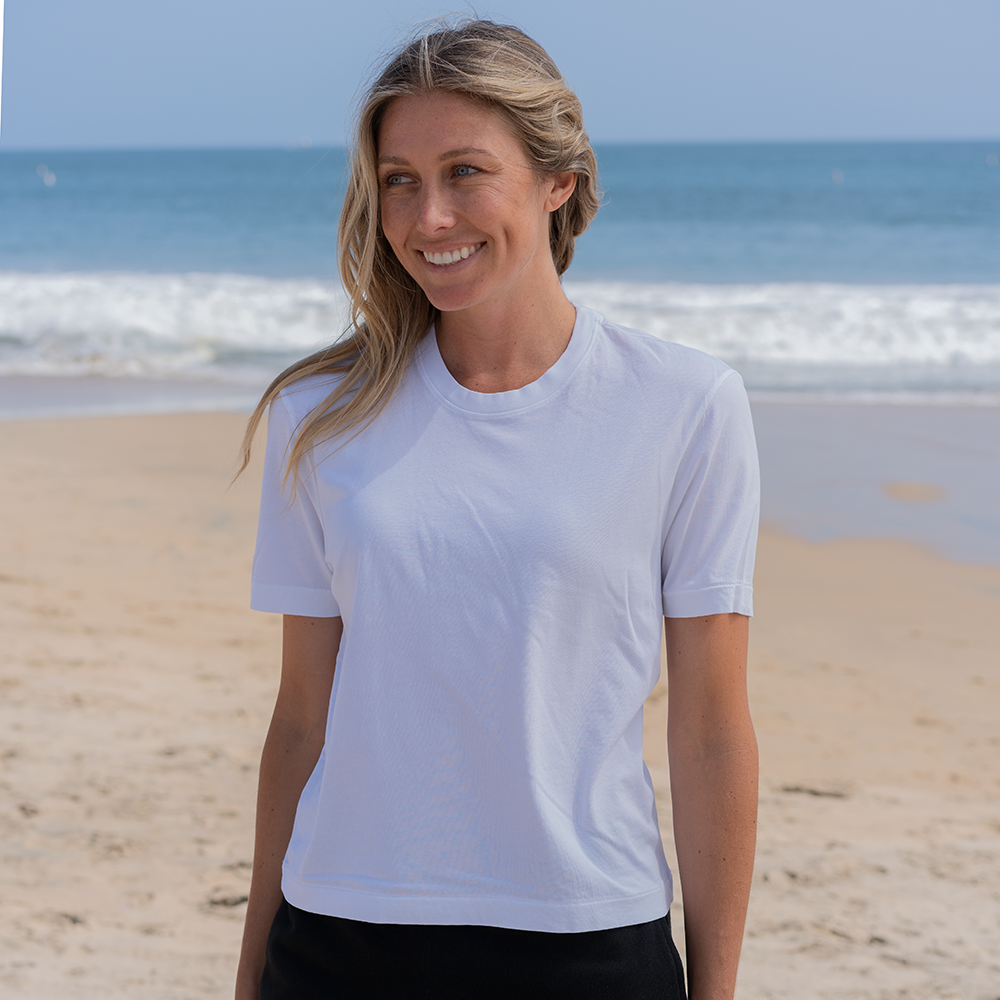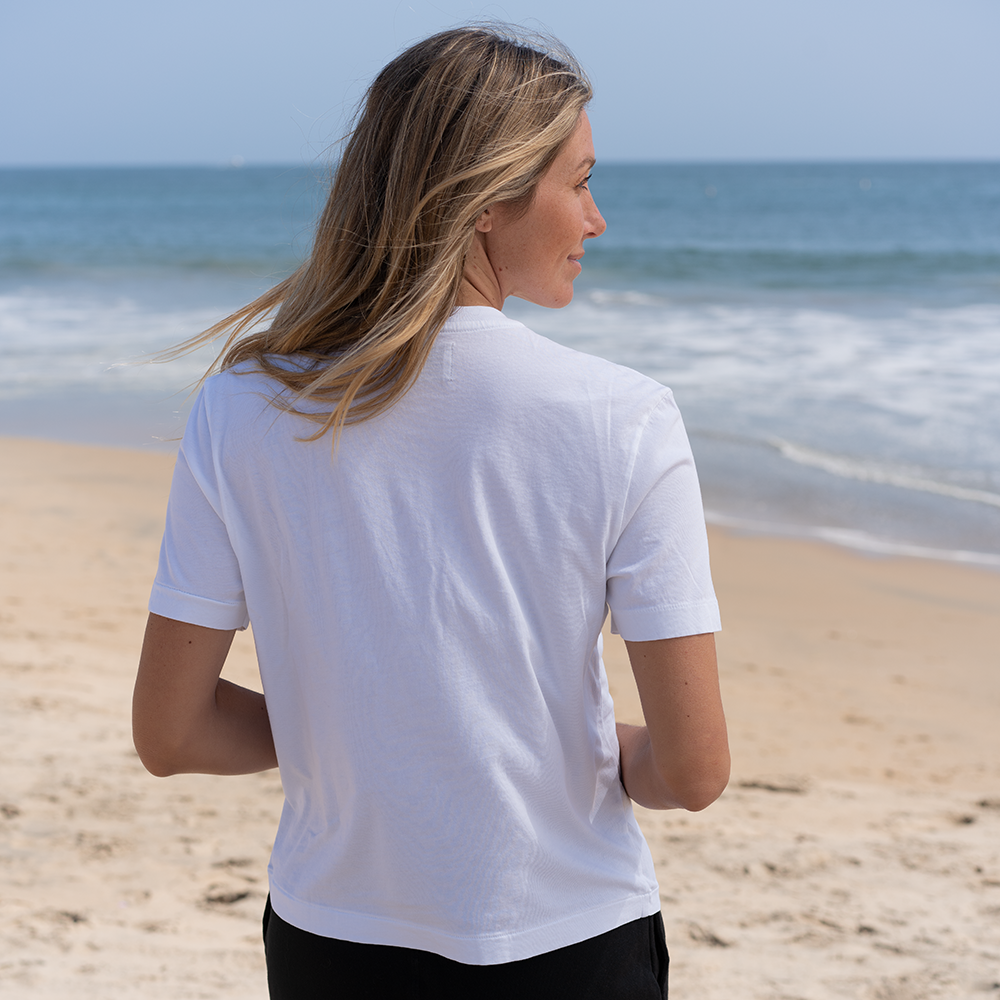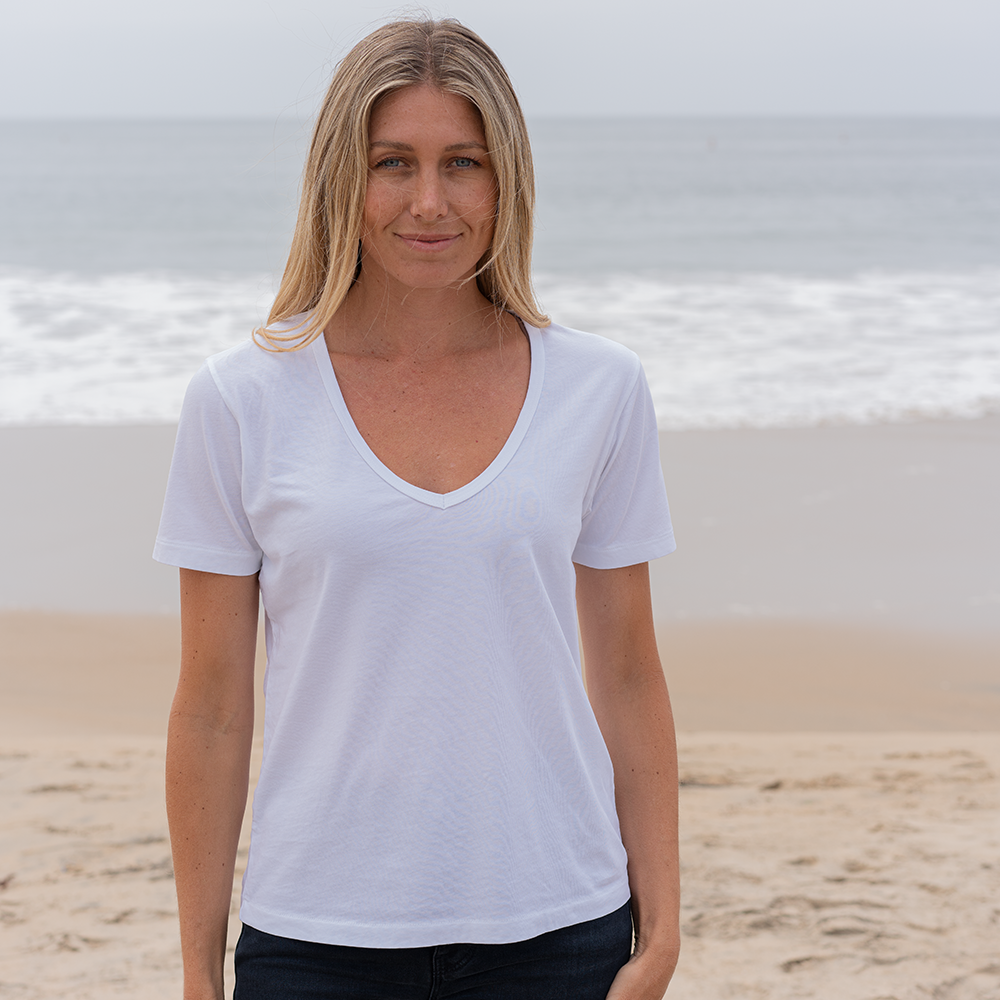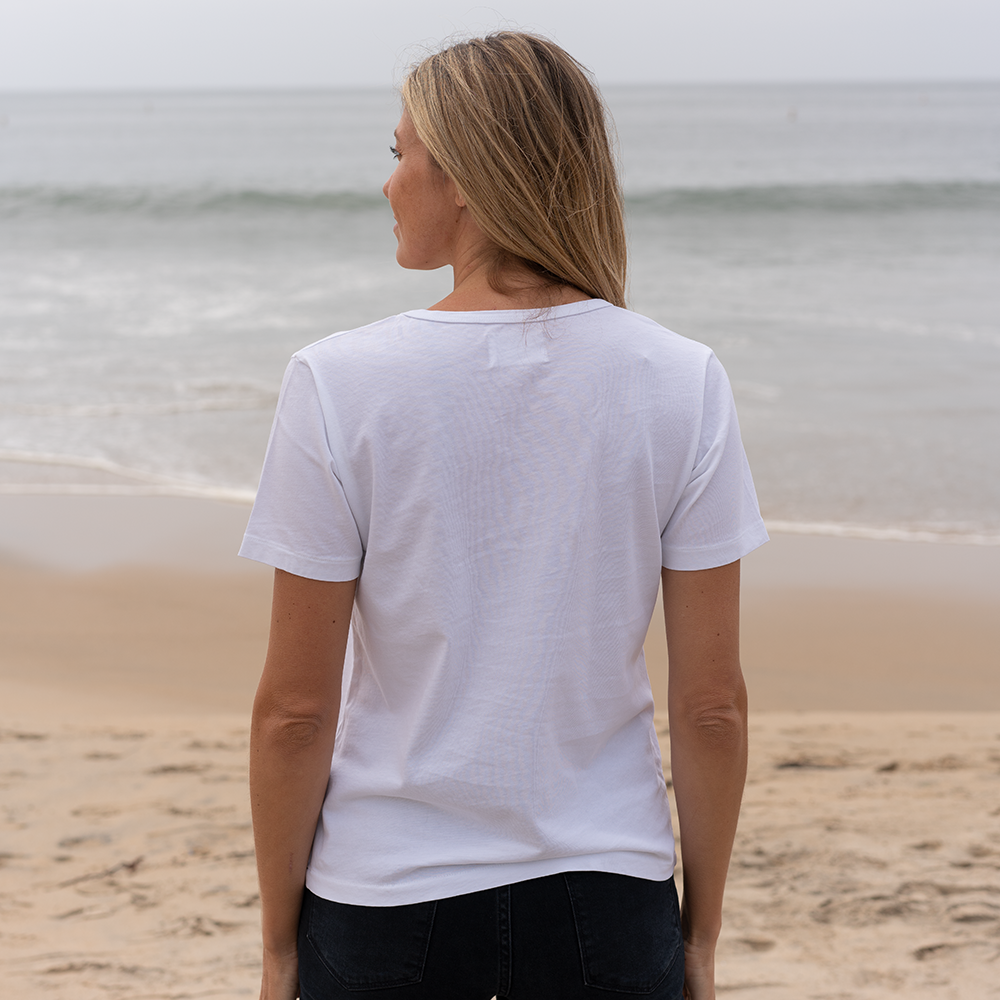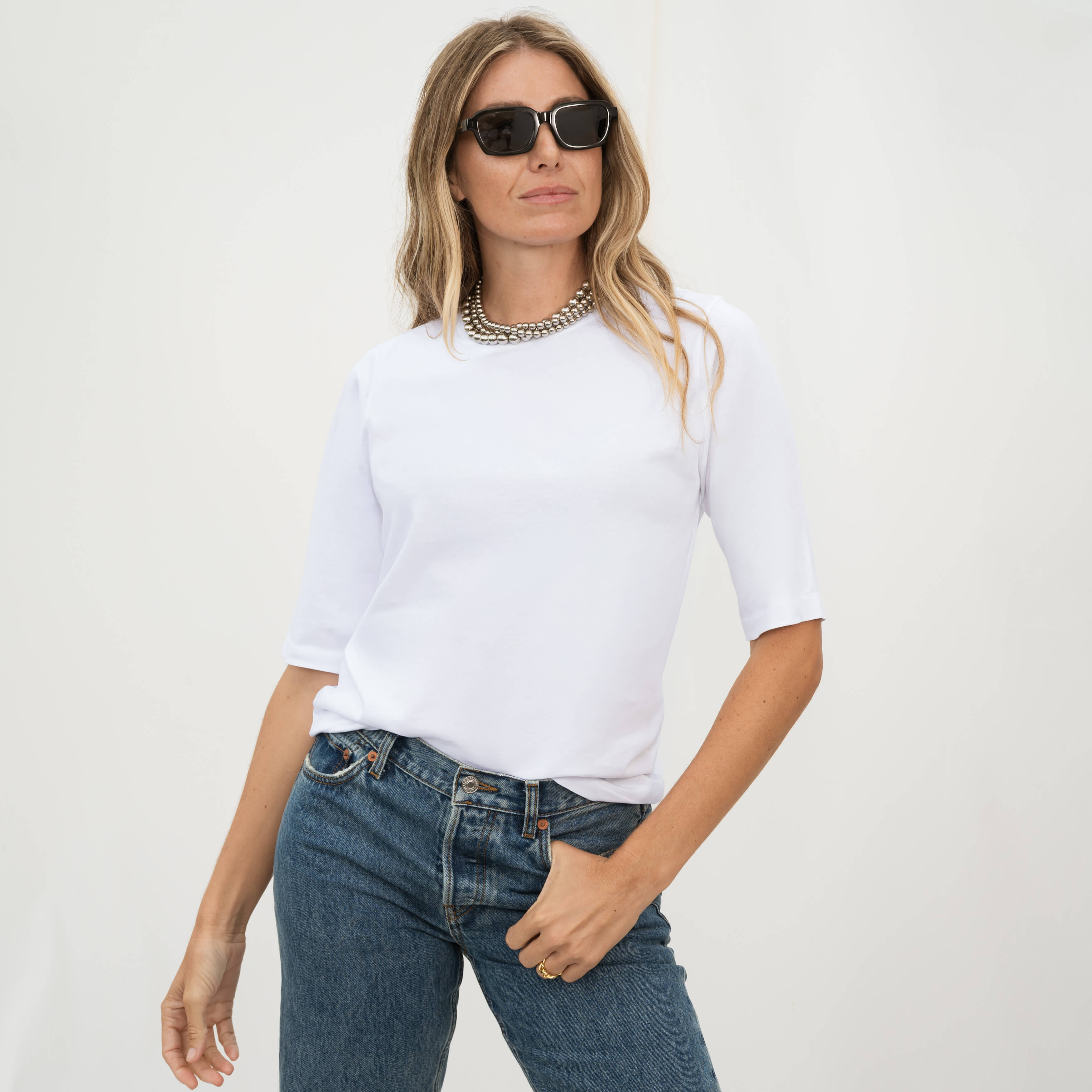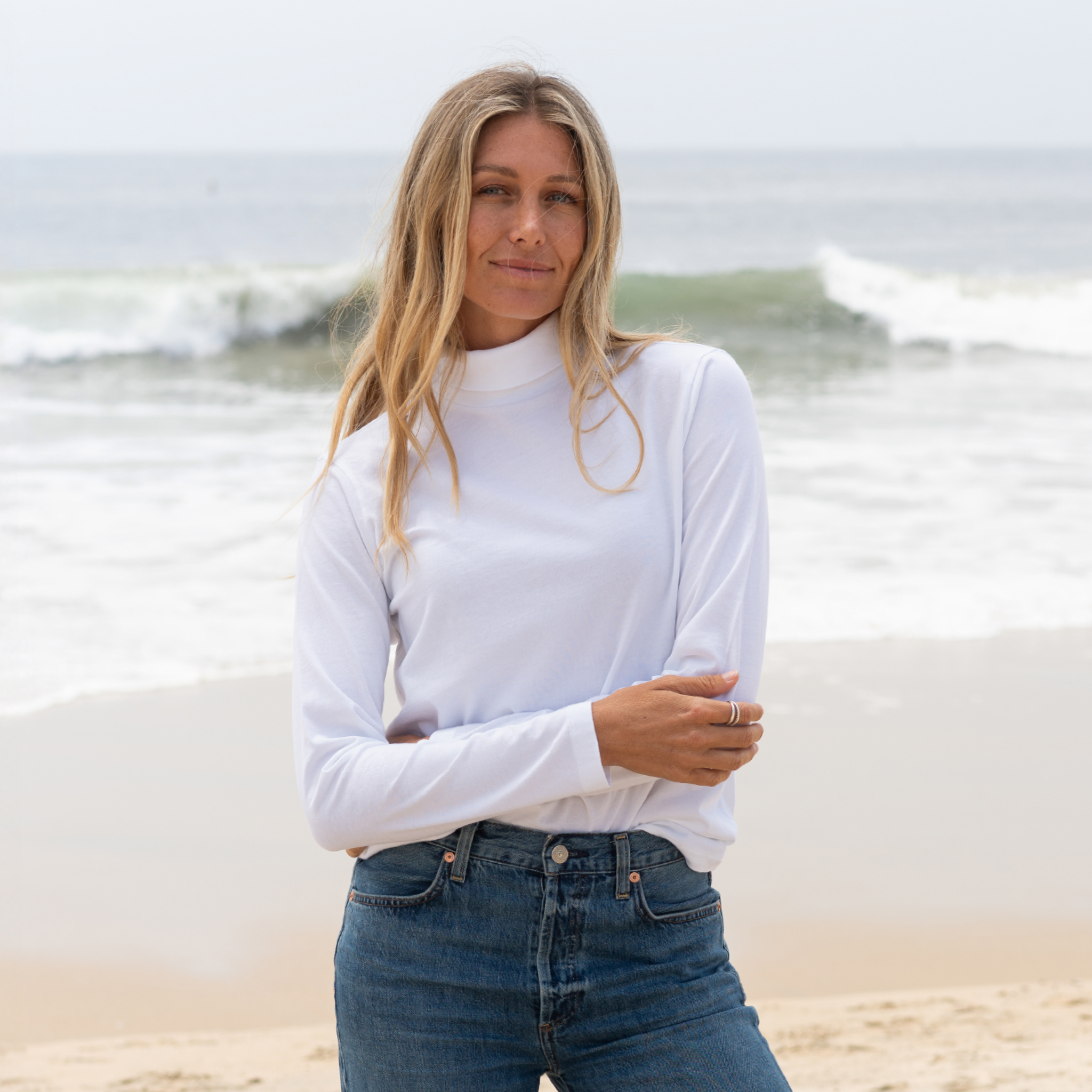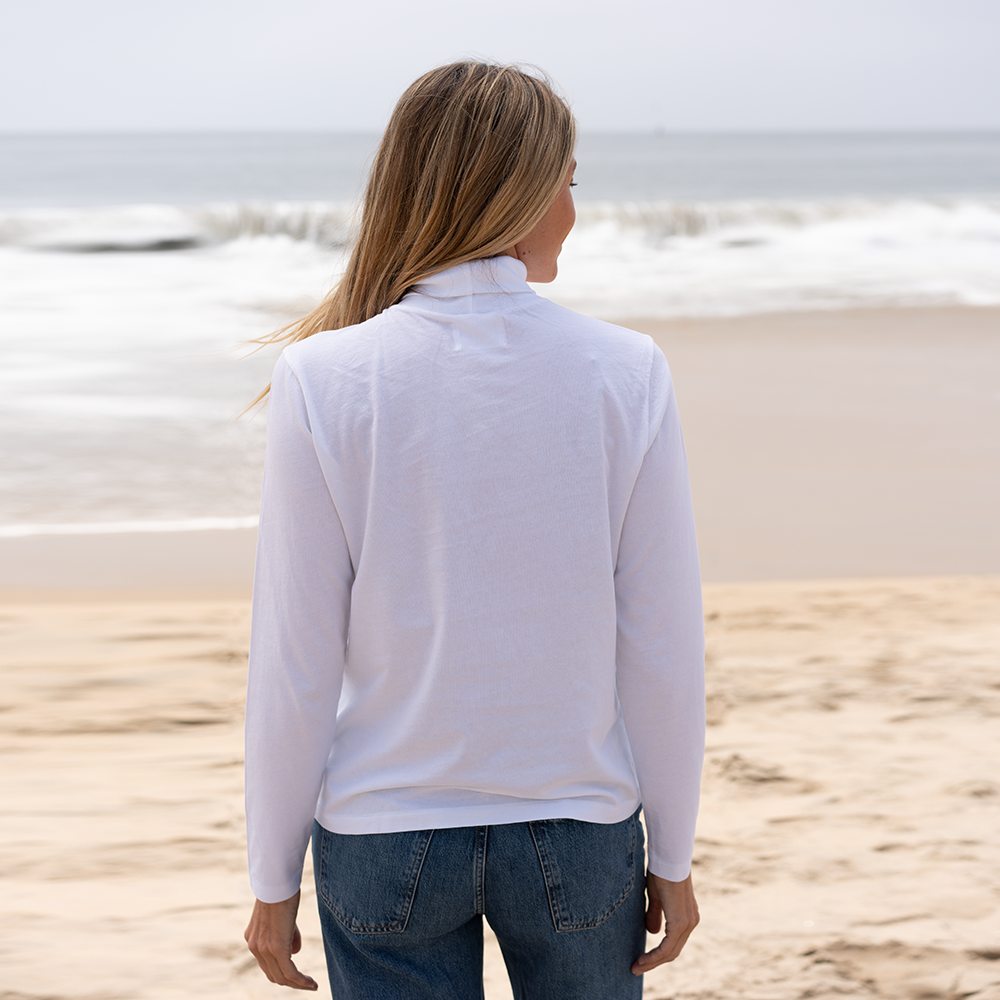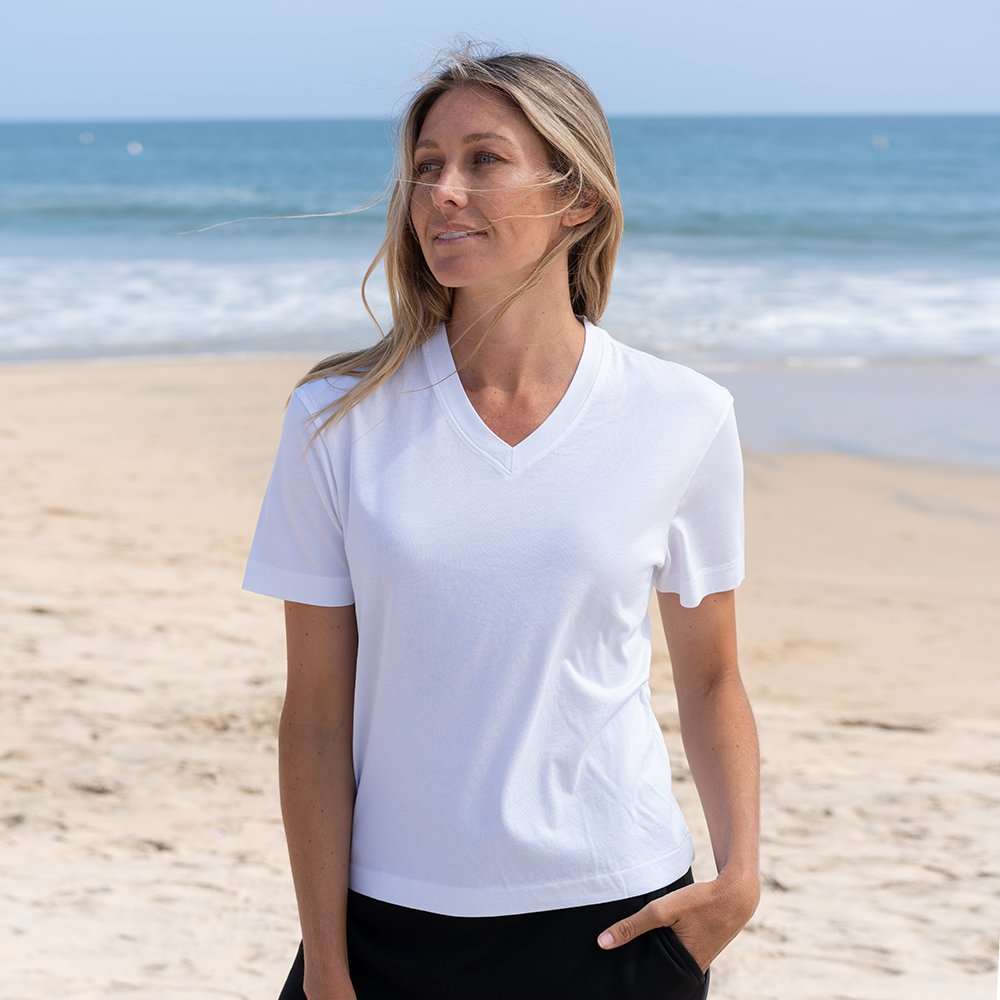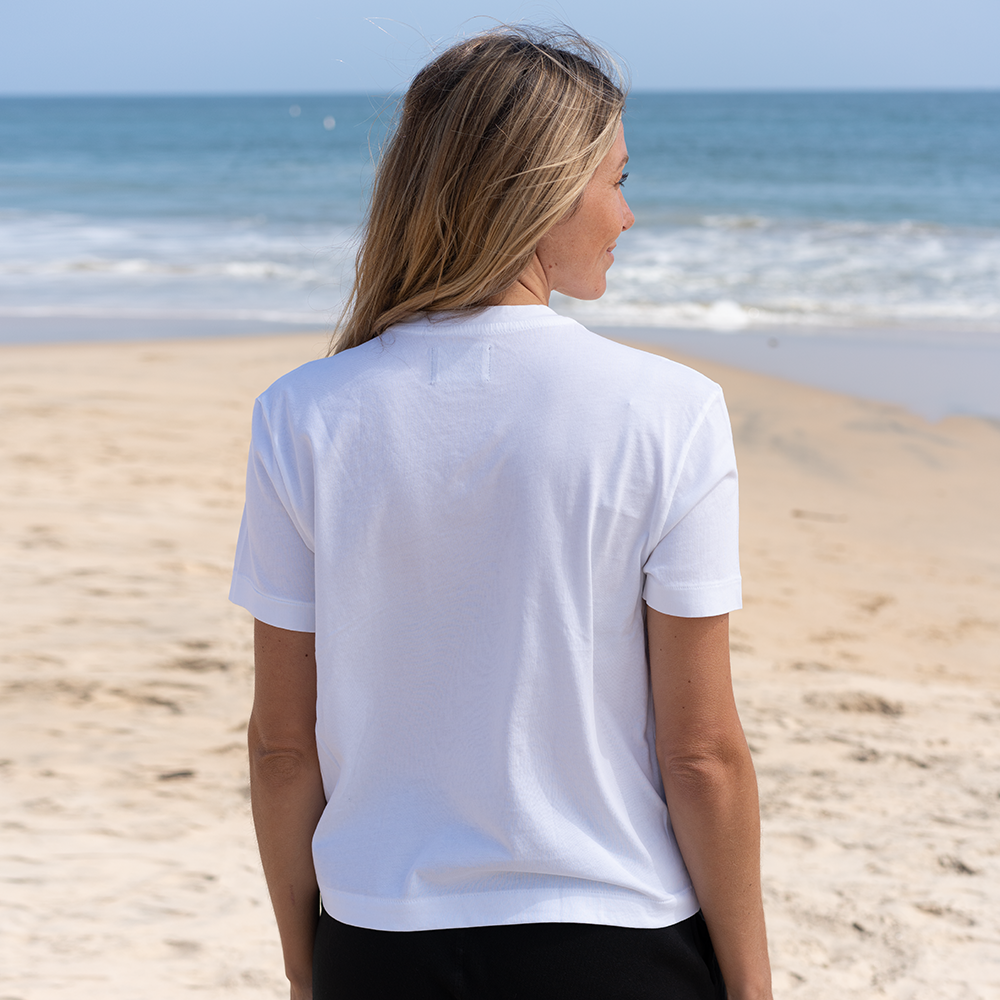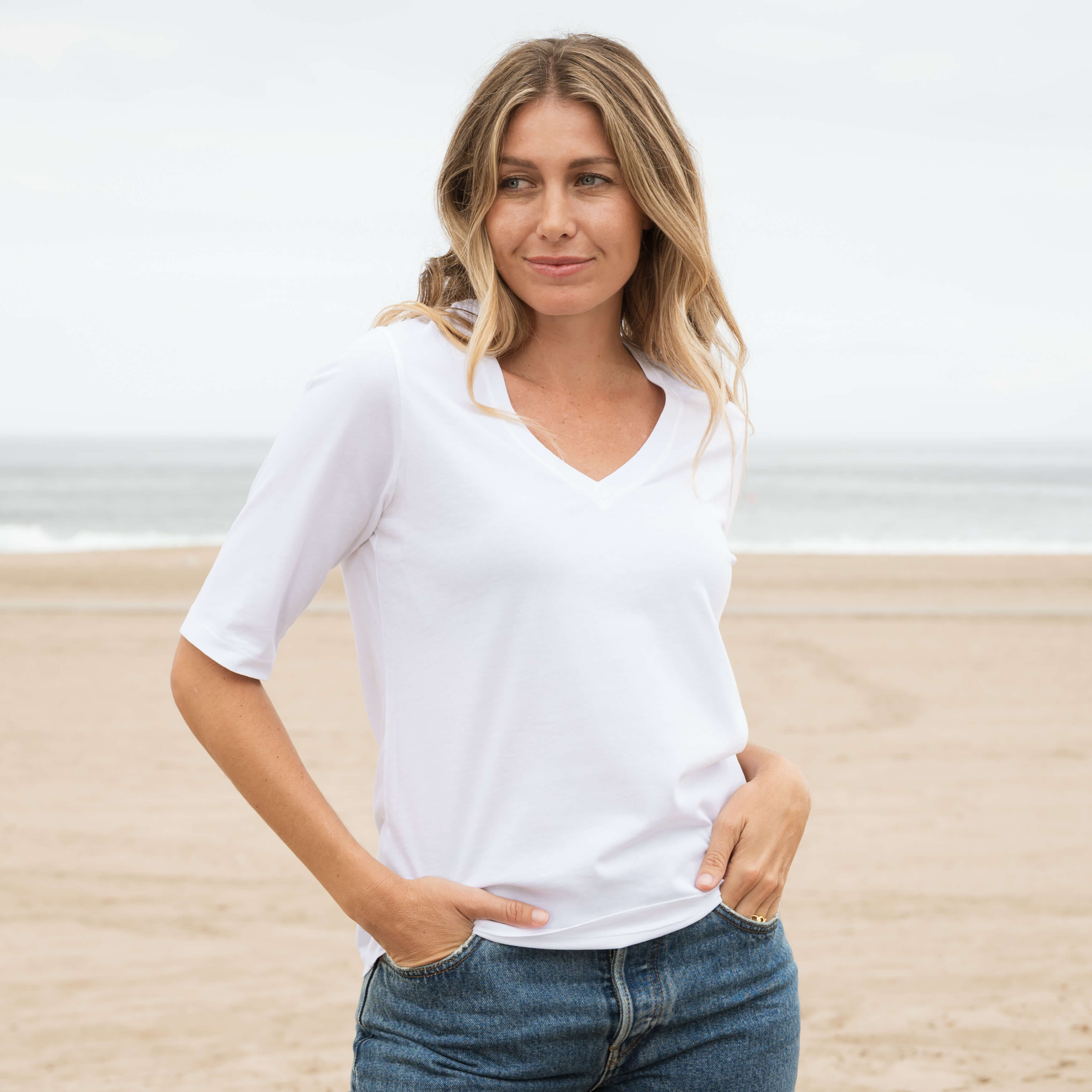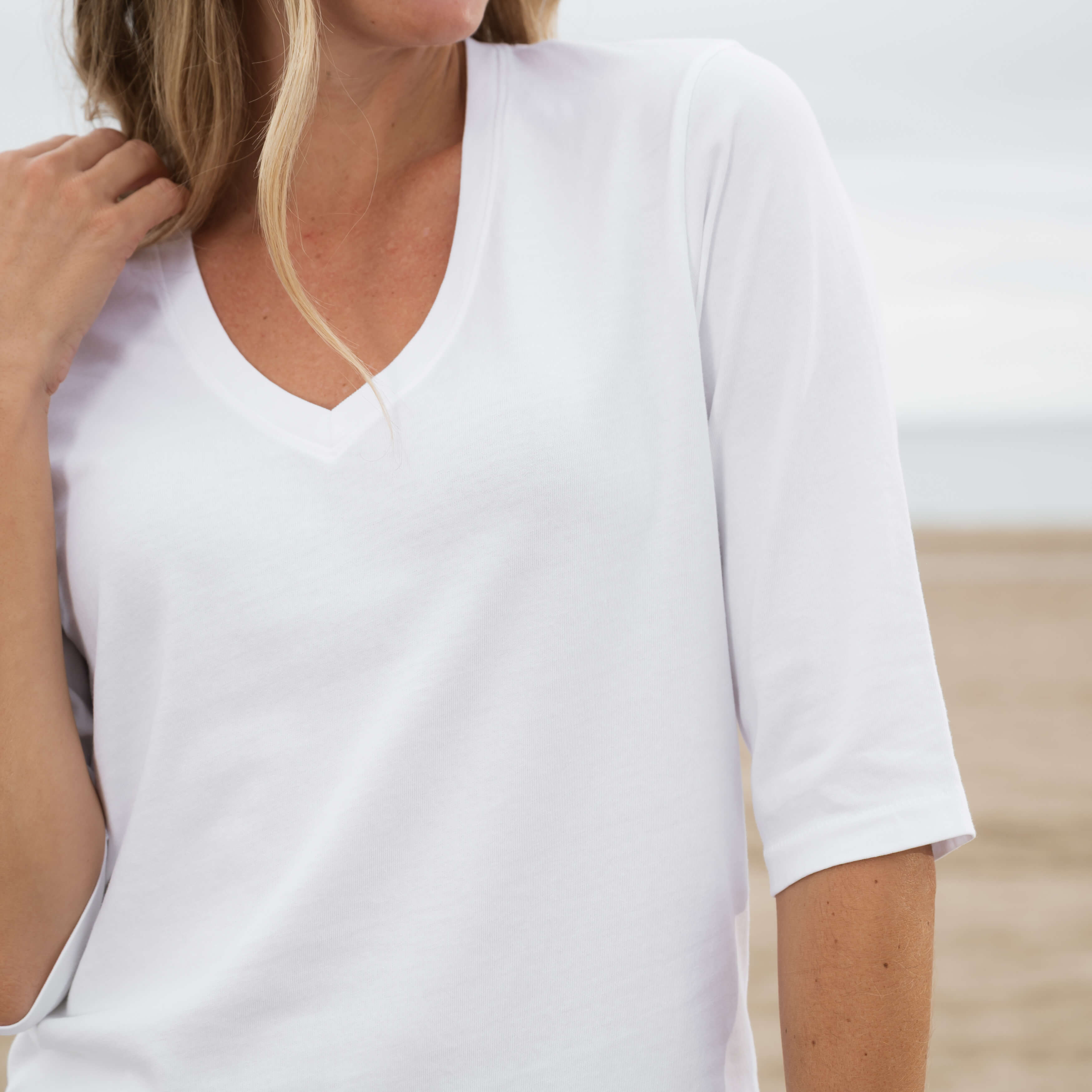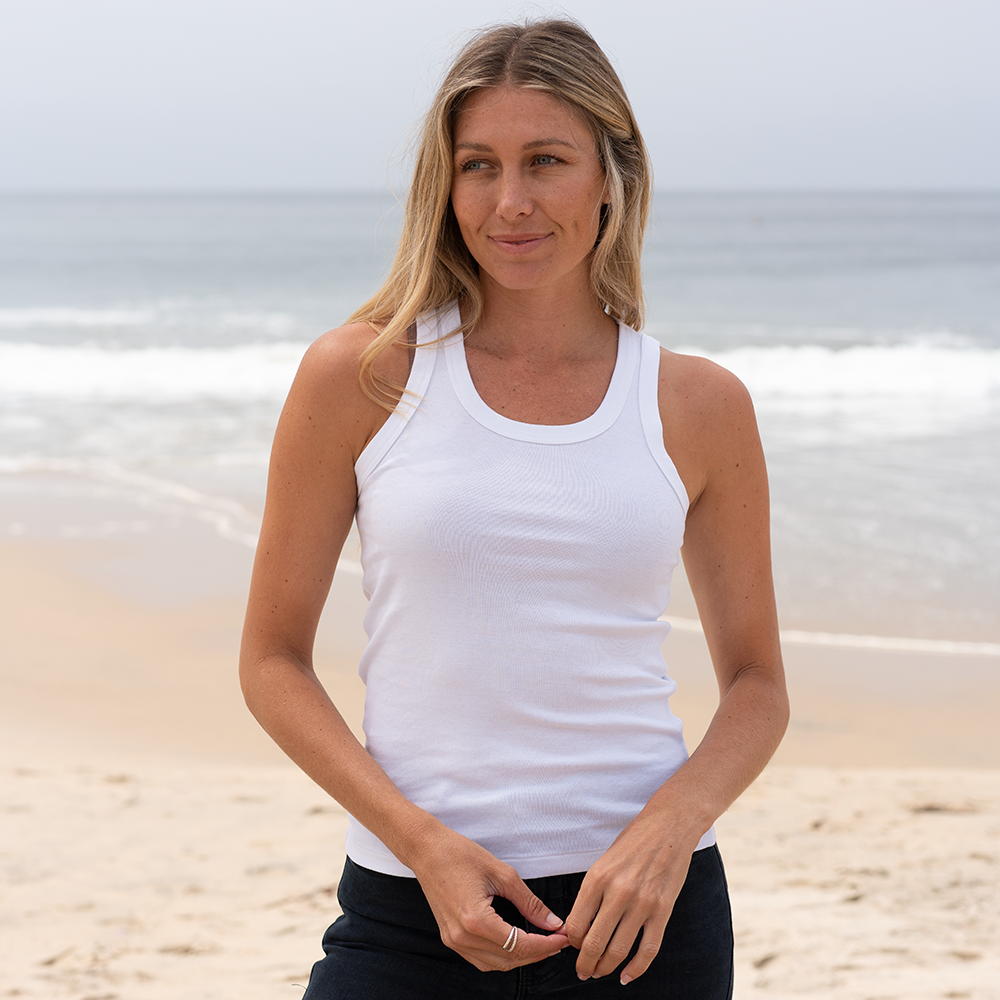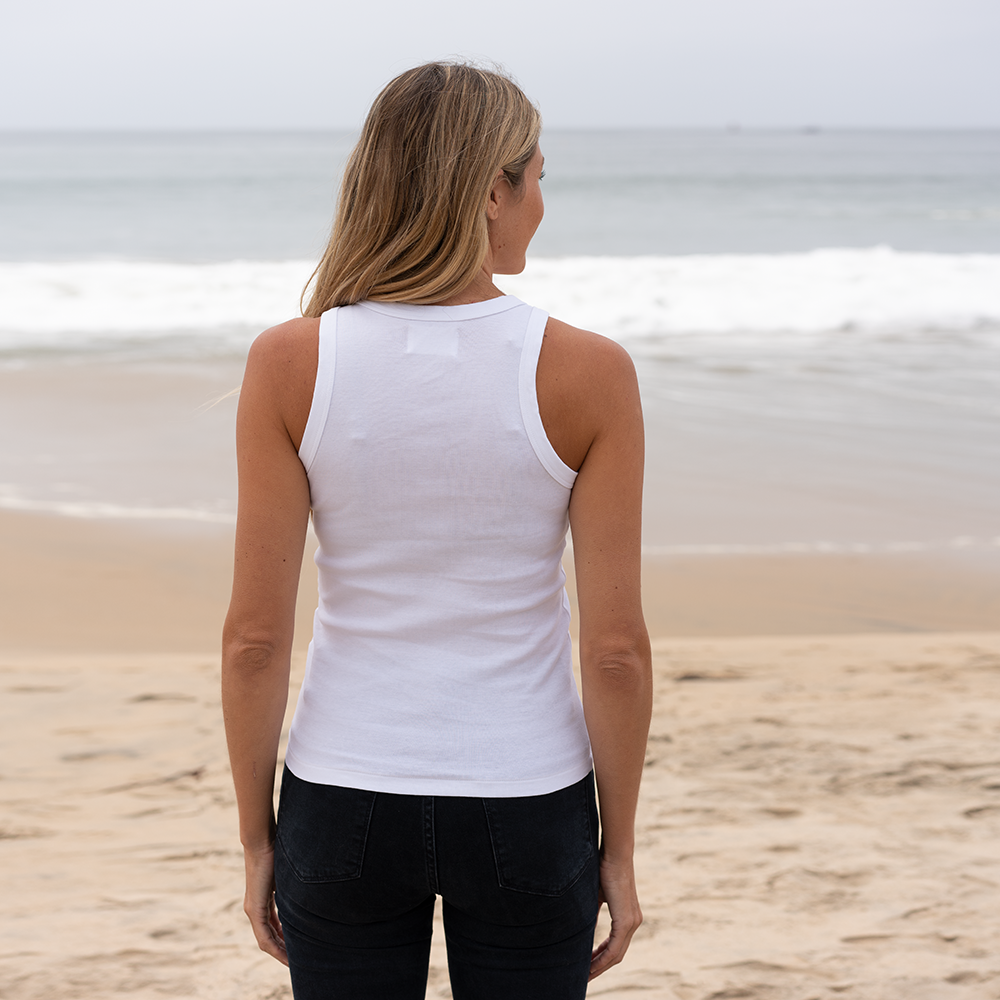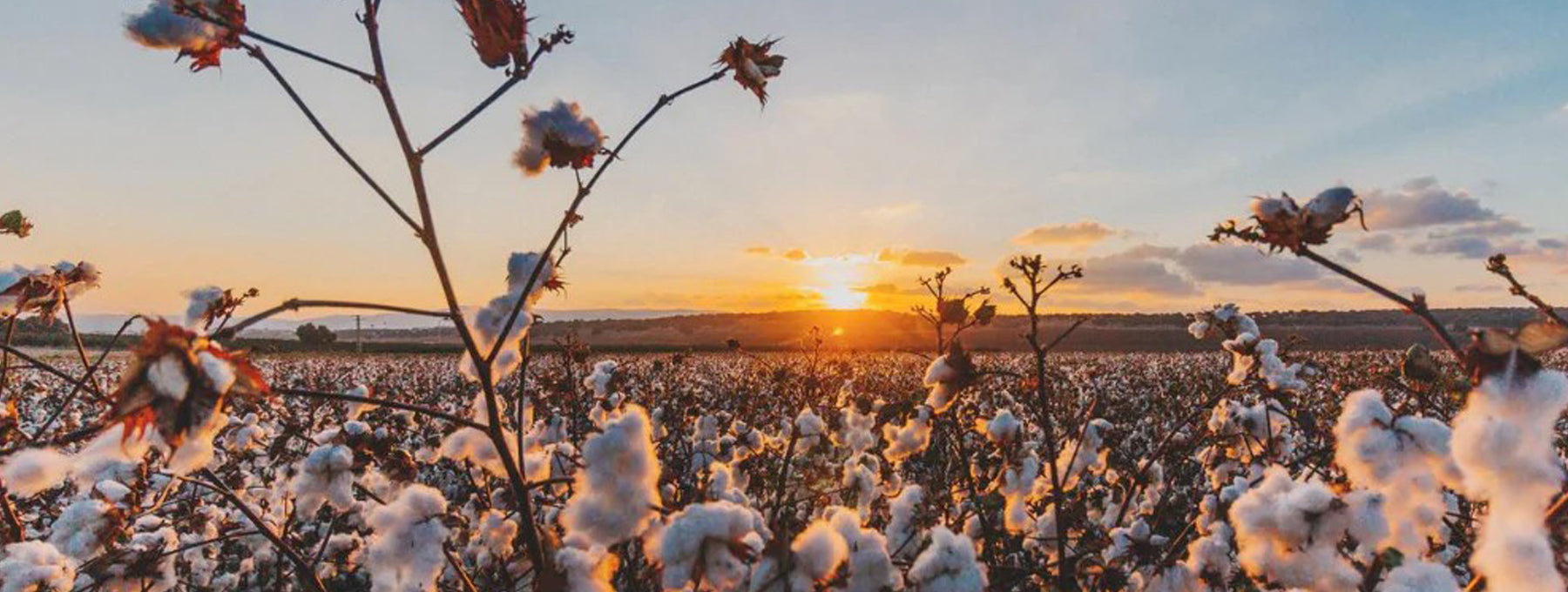Article: OUR STORY - Interview by Joshua Katcher
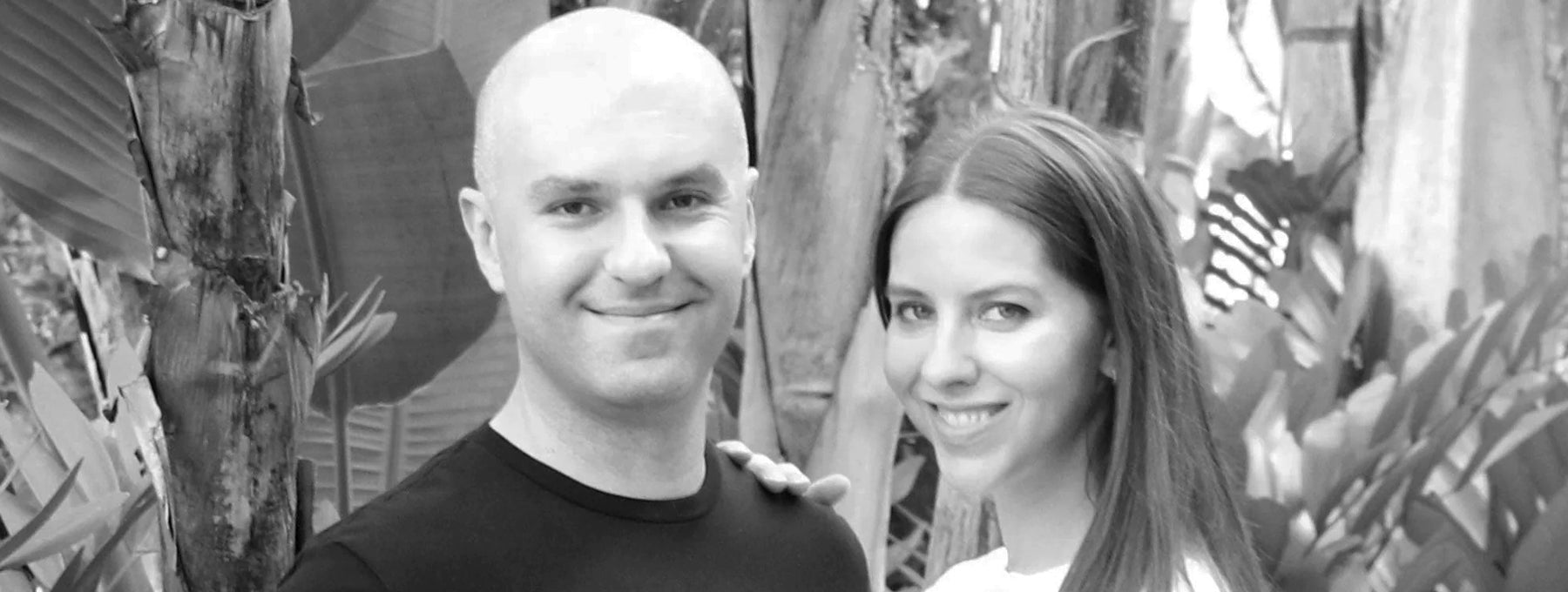
OUR STORY - Interview by Joshua Katcher
There's something about a plain T-shirt that speaks to almost everyone. Utilitarian and versatile, its indispensability is on par with a pair of jeans. This wardrobe staple is non-binary, can be dressed up or down, goes with almost everything and is casually cool in a way that's both nostalgic and forward-thinking. It is essentially the anti-slogan, a radically plain garment that emphasizes the wearer.
But, like so much of fashion, the T-shirt was blasted into the mainstream thanks to military advancements in mass production in the early 1900s. Over several decades, the plain tee shirt emerged as more than just an undergarment, and the way that most tee shirts are now made has also changed dramatically. Cheap, fast-fashion tees come at a high price to factory workers and the environment. Toxic pesticides, child slave labor and enormous amounts of waste plague the conventional cotton industry.
the best t-shirts for men
FOR MEN
For brands like The Classic T-Shirt Company, a premium tee is more than just a higher price tag and a brand-name. The cost, at $64 per tee, is actually funding the types of fashion systems we want to see flourish, from organic cotton and fair wages for factory workers to durability. I got to speak with founders Paul and Olga Garibian about how and why they are reinventing the classic tee.
JK: How are your shirts made, and how does it differ from other tee shirt companies out there?
PG: To my knowledge, we are the only company that focuses only on T-shirts, makes them in the US, and uses only organic cotton sourced from small farms in India. We also plan to introduce US-grown organic cotton in the near future to minimize our carbon footprint by cutting out international shipping. We make our t-shirts at one of the most ethical factories in Los Angeles, California, and our garment dye process takes place Orange County, with one of the most stringent regulatory environments. As a result, we believe our product will last longer over time, reducing total cost of ownership to the consumer and reduce overall T-shirt production.
Related: Dressed for change: how & why of sustainable T-shirts.
the best t-shirts for sale
FOR WOMEN
PEOPLE KEEP ASKING ME "WHY YOU ARE DOING SOMETHING AS BASIC AS A T-SHIRT?" MY ANSWER TO THEM IS, TO MAKE THE MOST BASIC PRODUCT "RIGHT".
JK: What has been the biggest challenge for you getting a small business off the ground?
PG: Coming from tech industry, people keep asking me "why you are doing something as basic as a t-shirt?" My answer to them is, to make the most basic product "right". It takes commitment to your values and relentless focus. Another big challenge is not getting discouraged by negative feedback. Some things not working day one is always a challenge but we have a very strong reason to do it, and this is what keeps us going.
Related: Why should I care about fair trade T shirts?
MANY PEOPLE IN THE CLOTHING PRODUCTION INDUSTRY MAKE LESS THAN THE POVERTY LINE IN THEIR RESPECTIVE COUNTRIES.
JK: What do you wish people knew about clothing production that isn't often spoken about?
PG: First, many people in the clothing production industry make less than the poverty line in their respective countries (Bangladesh $68/month vs $73/month poverty line). Second, that chemicals used in conventional cotton production are very harmful to the water bed and to the farmers in the rest of the world on small farms.Lastly, that we can all make a difference by investing in ethical and quality basics that last longer and do less harm to the planet - there is no free lunch here
JK: What does the future of fashion look like to you?
PG: I'm convinced that once brand like ours succeeds in educating the consumer, fast fashion will no longer exist in its present form. Future generations are much more informed and more responsible as a result and this will make the world population more empowered to make the world a better place. In regards to my brand in the near future, I'm very optimistic and excited about local production and reducing international shipping.
Follow The Classic T-Shirt Company on Instagram @theclassictshirt, and shop at theclassicrshirt.com.
Written by: Joshua Katcher

About Joshua
Joshua Katcher is a fashion designer, author, activist and educator who has taught at Parsons The New School and LIM college, and has lectured internationally on sustainable and ethical fashion. He wrote first book in 2018, Fashion Animals, dedicated to understanding how any why animals are exploited in the fashion industry.
Katcher launched the first vegan, ethically-made menswear fashion brand, Brave GentleMan in 2010. VOGUE says that, "The full scope of Katcher’s ethical commitment is rather head-spinning, just as it is to gape about his Williamsburg shop, with its complete future-is-now men’s range". PAPER MAG said BGM has "just about everything a mindful fashionisto could want”, while Sportswear International said that BGM is, “vegan smart and cool menswear”. Brave GentleMan has graced the cover of British GQ's November 2016 Issue on Benedict Cumberbatch. Forbes has featured BGM in their gift guides, while COMPLEX called BGM one of the “coolest things” they've seen. Katcher was awarded "Menswear Brand of the Year, 2016" and "Most Influential Designer of 2015" by PETA. He was a contributor to HuffPo style, has appeared on the cover of Vegan Good Life Magazine, and has been interviewed on major networks, such as PBS News Hour and Al Jazeera America as a fashion expert.



